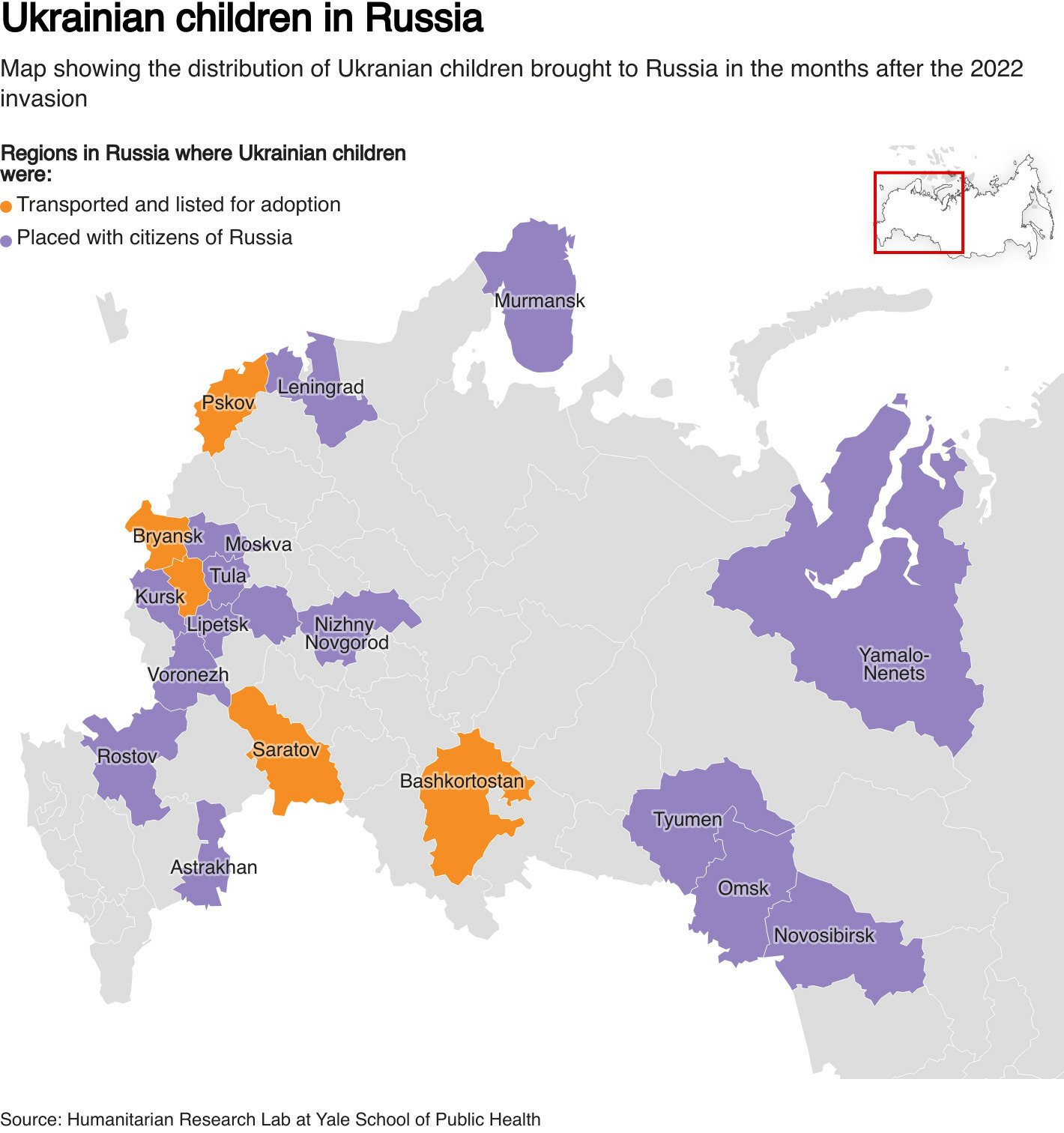-
Black Sea ceasefire will take effect after some sanctions are lifted, Kremlin says
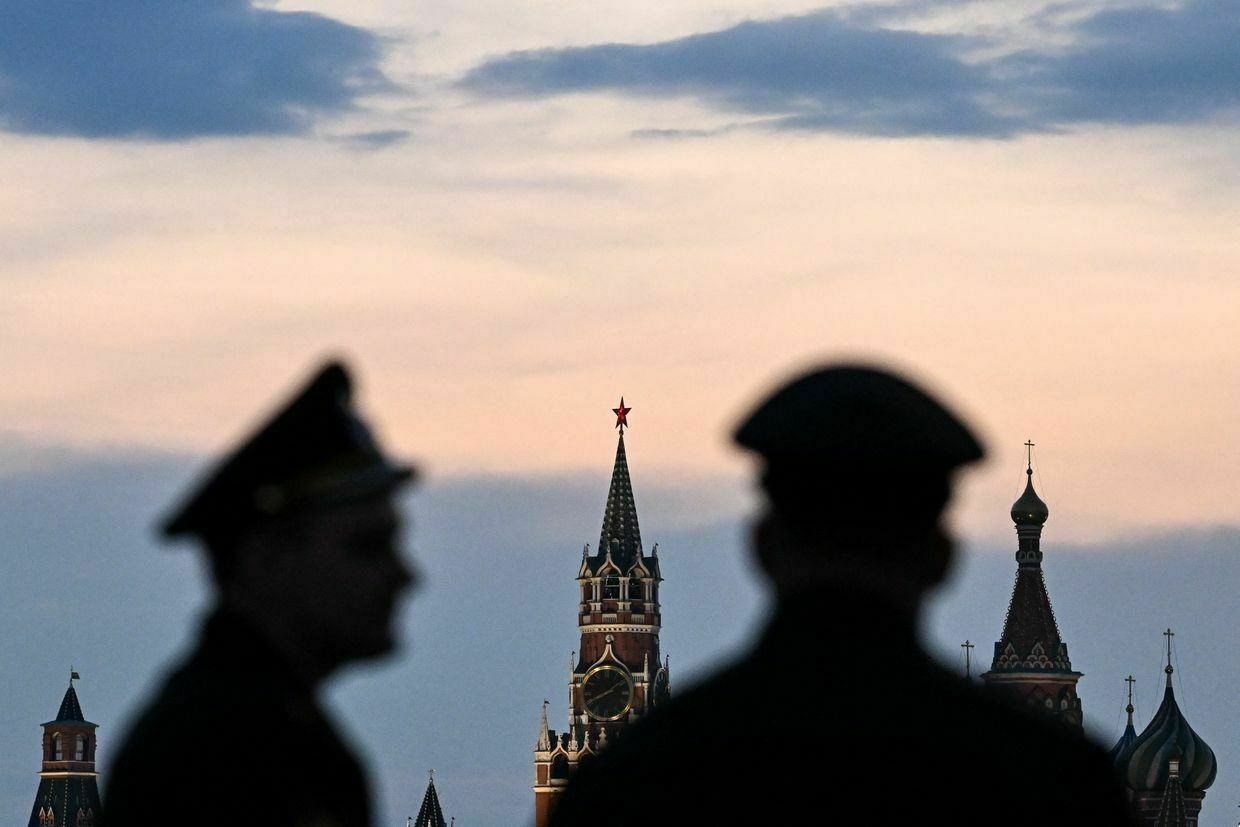
Editor’s note: This story is being updated.
The ceasefire in the Black Sea will take effect only after Western sanctions on Russian food producers and exporters are lifted, the Kremlin said in a statement on March 25.
The statement came after two-day talks in Saudi Arabia, during which Ukraine, Russia and the U.S. agreed to implement a ceasefire in the Black Sea and a ban on strikes against energy infrastructure.
In contrast with Russia’s statement, Ukraine and the U.S. did not directly mention lifting sanctions against Moscow as part of the agreements.
Washington vowed to help restore Russia’s access to the world market for agricultural and fertilizer exports, lower maritime insurance costs, and enhance access to ports and payment systems for such transactions.
The Kremlin said that the Black Sea ceasefire would come into effect after the West lifts the sanctions against Russia’s Rosselkhozbank and other financial organizations involved in supporting international food trade operations and restores their connection to the SWIFT messaging system.
Moscow is also demanding that the West lift the sanctions on Russian food producers and exporters and on Russian-flagged ships involved in food and fertilizer trade.
The Kremlin also claimed that the ban on energy strikes had been in effect since March 18 and would be valid for 30 days with the possibility of extension.
Despite the agreement between U.S. President Donald Trump and his Russian counterpart, Vladimir Putin a week ago, Russia has continued its regular campaign of aerial attacks against Ukrainian cities and infrastructure.
Russia, Ukraine agree to partial ceasefire in Black Sea, US to help restore Russia’s access to marketsWashington vowed to help restore Russia’s access to the world market for agricultural and fertilizer exports, lower maritime insurance costs, and enhance access to ports and payment systems for such transactions.The Kyiv IndependentKateryna Denisova
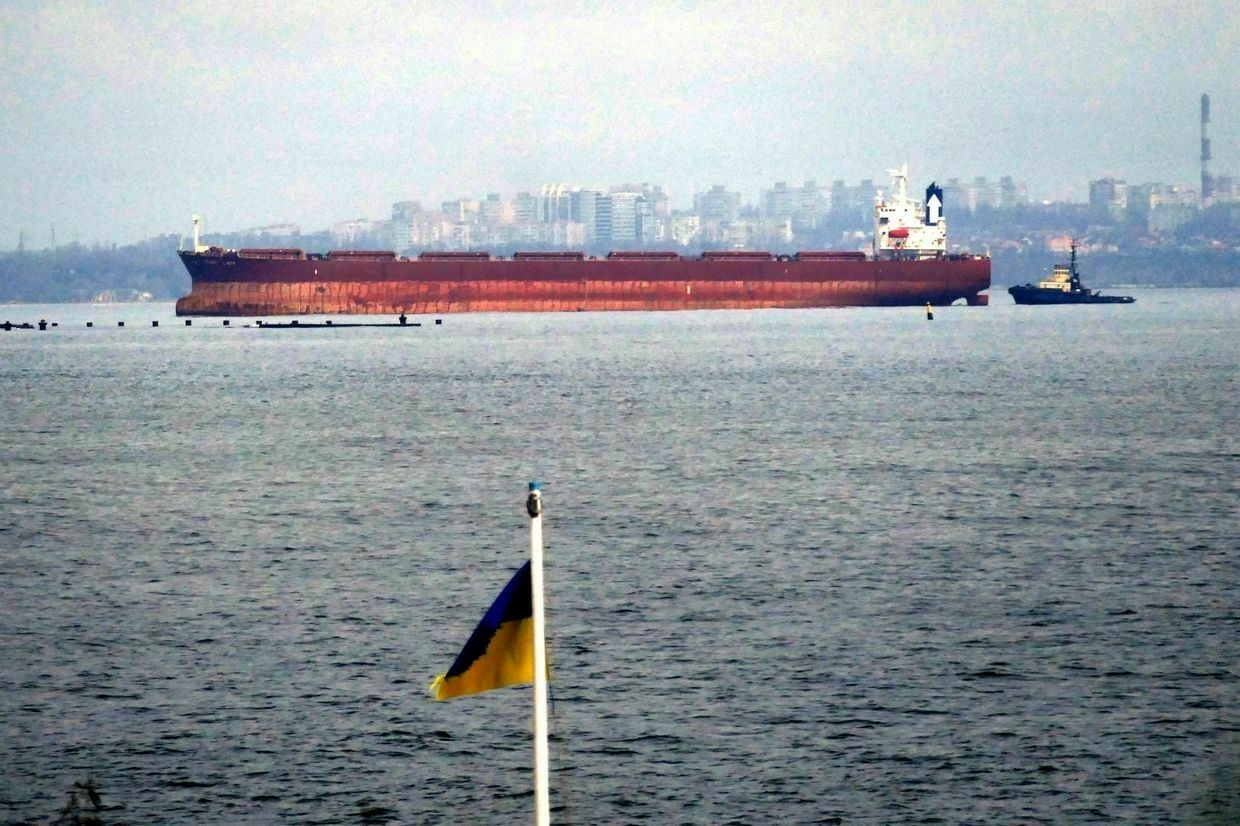
-
Russia, Ukraine agree to eliminate 'use of force' in Black Sea, US to help restore Russia's access to markets

Editor’s note: This story is being updated.
The U.S., Russia and Ukraine have agreed to “eliminate the use of force” and prevent the use of commercial vessels for military purposes in the Black Sea following two-day talks in Saudi Arabia, the White House announced on March 25.
Washington also vowed to help restore Russia’s access to the world market for agricultural and fertilizer exports, lower maritime insurance costs, and enhance access to ports and payment systems for such transactions.
Delegates from Moscow and Washington held a 12-hour meeting in Riyadh on March 24 to discuss the possibilities of a ceasefire in Russia’s full-scale war against Ukraine. The talks reportedly focused largely on a maritime ceasefire in the Black Sea.
Ukrainian officials have been briefed on the outcomes of the U.S.-Russia talks before their publication, an undisclosed source told CBS News.
U.S. President Donald Trump also previously revealed that the Riyadh talks concerned demarcation lines and ownership of a Ukrainian power plant. President Volodymyr Zelensky has said he had discussed the status of the Russian-occupied Zaporizhzhia Nuclear Power Plant in his phone call with Trump last week.
The U.S. delegation was led by Andrew Peek, a senior director at the U.S. National Security Council, and Michael Anton, a senior State Department official, an undisclosed source told Reuters.
The Russian delegation included Grigory Karasin, chairman of the Federation Council Committee on International Affairs, and Sergey Beseda, an advisor to Federal Security Service (FSB) Director Alexander Bortnikov.
The talks were the latest step in Trump’s attempt to secure a peace deal between Kyiv and Moscow. Russian President Vladimir Putin rejected Washington’s proposal for a 30-day ceasefire during a call with Trump on March 18, but offered to immediately impose a partial ceasefire on energy sector attacks.
Despite the agreement, Russia continued its regular campaign of aerial attacks against Ukrainian cities and infrastructure.
A U.S. team also met with a Ukrainian delegation in Riyadh on March 23, the day before the Russia talks. Ukraine’s team reportedly remained in Saudi Arabia for a subsequent meeting with the U.S. delegates.
Editorial: What Steve Witkoff doesn’t get about Ukraine (and Russia)In any negotiation, one of the most powerful weapons is knowledge. In that regard, Steve Witkoff is willfully disarmed. And it’s playing just right for Russia. The interview that Witkoff, Trump’s special envoy, gave to Tucker Carlson a few days ago revealed a truth that was perceived especiallyThe Kyiv IndependentThe Kyiv Independent
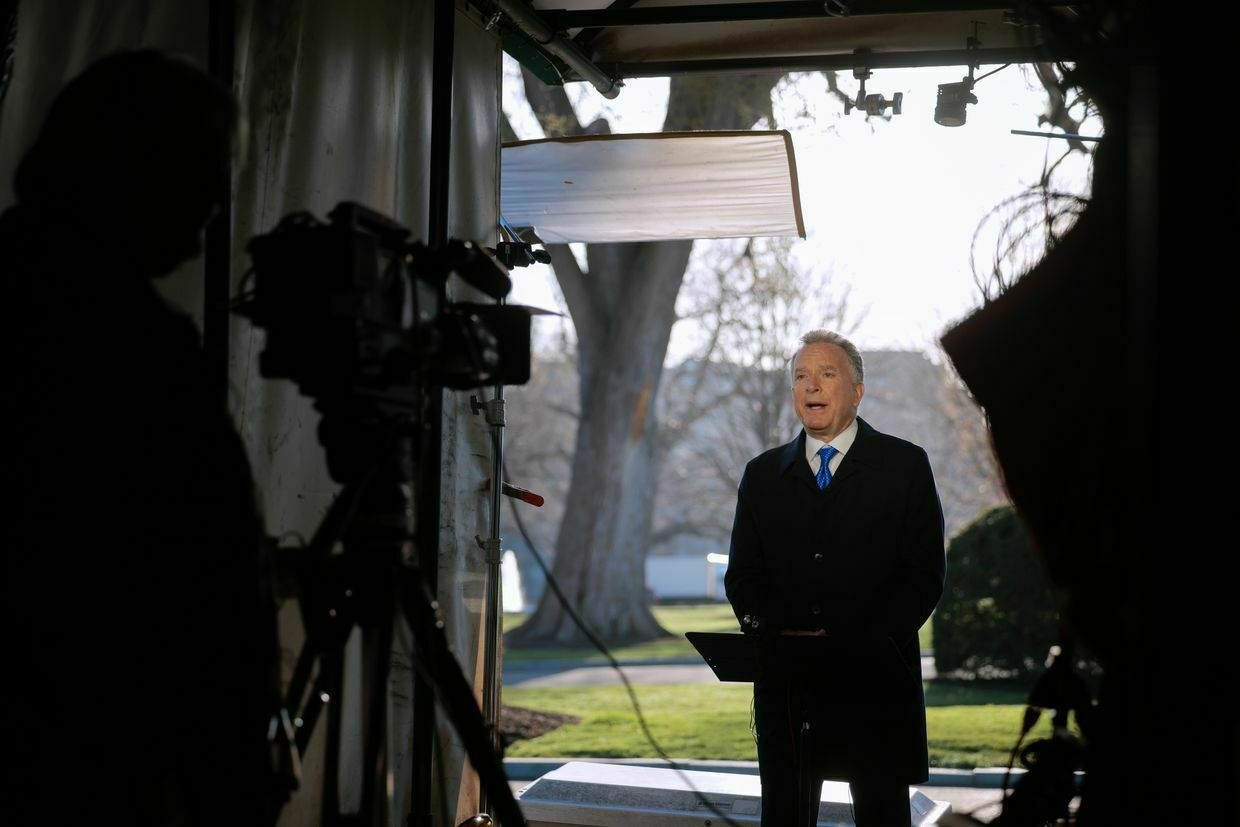
-
Russian Oil Refinery ANNIHILATED. Trump About UA-US Talks. Russian Missile Strike on Sumy
-
Waltz to reportedly discuss Black Sea ceasefire with Russian counterpart on March 25
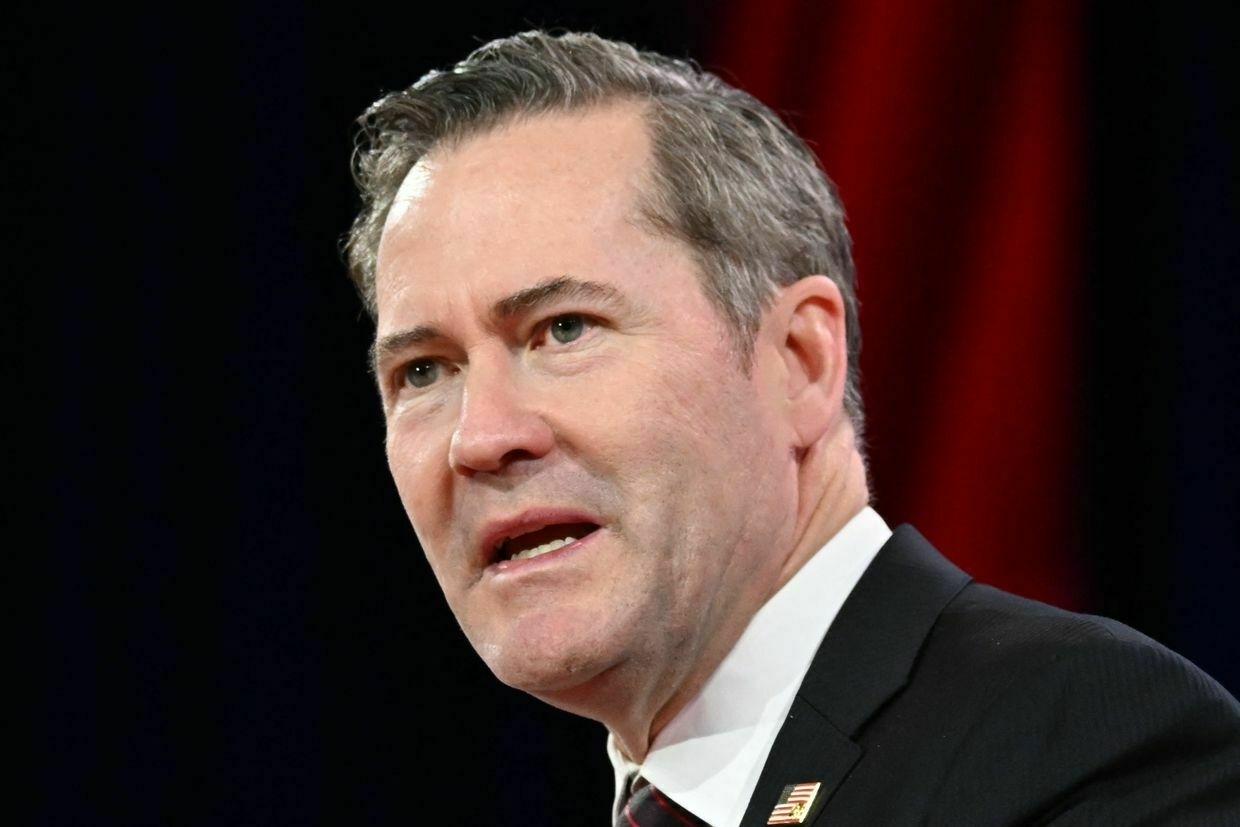
U.S. National Security Advisor Mike Waltz is scheduled to discuss a possible ceasefire deal in the Black Sea with his Russian counterpart later on March 25, Fox News reported.
Waltz has been in contact with Russian President Vladimir Putin’s top aide, Yuri Ushakov, to hammer out conditions on a potential ceasefire between Russia and Ukraine.
The resumption of a Black Sea Initiative that would include a cessation of hostilities in the Black Sea was the key focus of the talks between U.S. and Russian delegates in Riyadh on March 24.
Neither party revealed details about the 12-hour talks, which were followed by a brief meeting between the U.S. and Ukrainian teams on March 25. Russian negotiator Grigory Karasin said that many issues had been discussed during the meeting, but “not everything was resolved."
The so-called Black Sea Grain Initiative was first brokered by the U.N. and Turkey in 2022 to allow Ukraine to ship out its grain despite Russia’s ongoing invasion. The deal broke down a year later after Russia withdrew from the deal, claiming that its demands, namely pertaining to its fertilizer industry, had not been addressed.
Despite the initial deal breaking down in 2023, Ukraine has managed to unilaterally reopen the Black Sea corridor, in large part thanks to a sustained drone and missile campaign against the Russian Black Sea Fleet.
Fox News also reported that Waltz does not plan to resign after reports of leaks of U.S. plans for strikes against Yemen. The Atlantic’s editor-in-chief, Jeffrey Goldberg, reported on March 24 that he was accidentally added by a user named Mike Waltz to a Signal chat where top Trump administration officials discussed plans for the operation.
This prompted rumors that Waltz might be forced out as a result of the embarrassing security breach. The advisor told his colleagues he had never met or spoken to Goldberg, according to Fox News.
Editorial: What Steve Witkoff doesn’t get about Ukraine (and Russia)In any negotiation, one of the most powerful weapons is knowledge. In that regard, Steve Witkoff is willfully disarmed. And it’s playing just right for Russia. The interview that Witkoff, Trump’s special envoy, gave to Tucker Carlson a few days ago revealed a truth that was perceived especiallyThe Kyiv IndependentThe Kyiv Independent
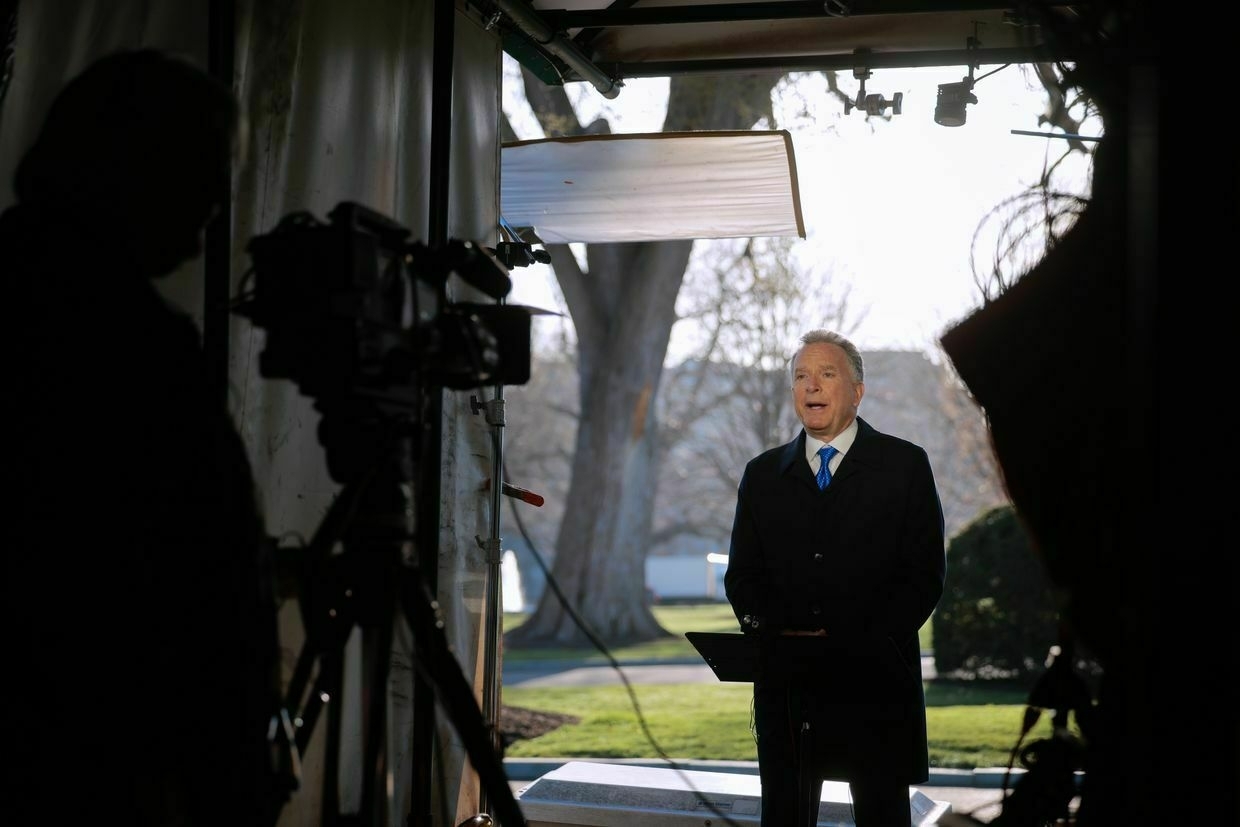
-
EU approval among citizens at record level as global security concerns grow, Eurobarometer poll shows
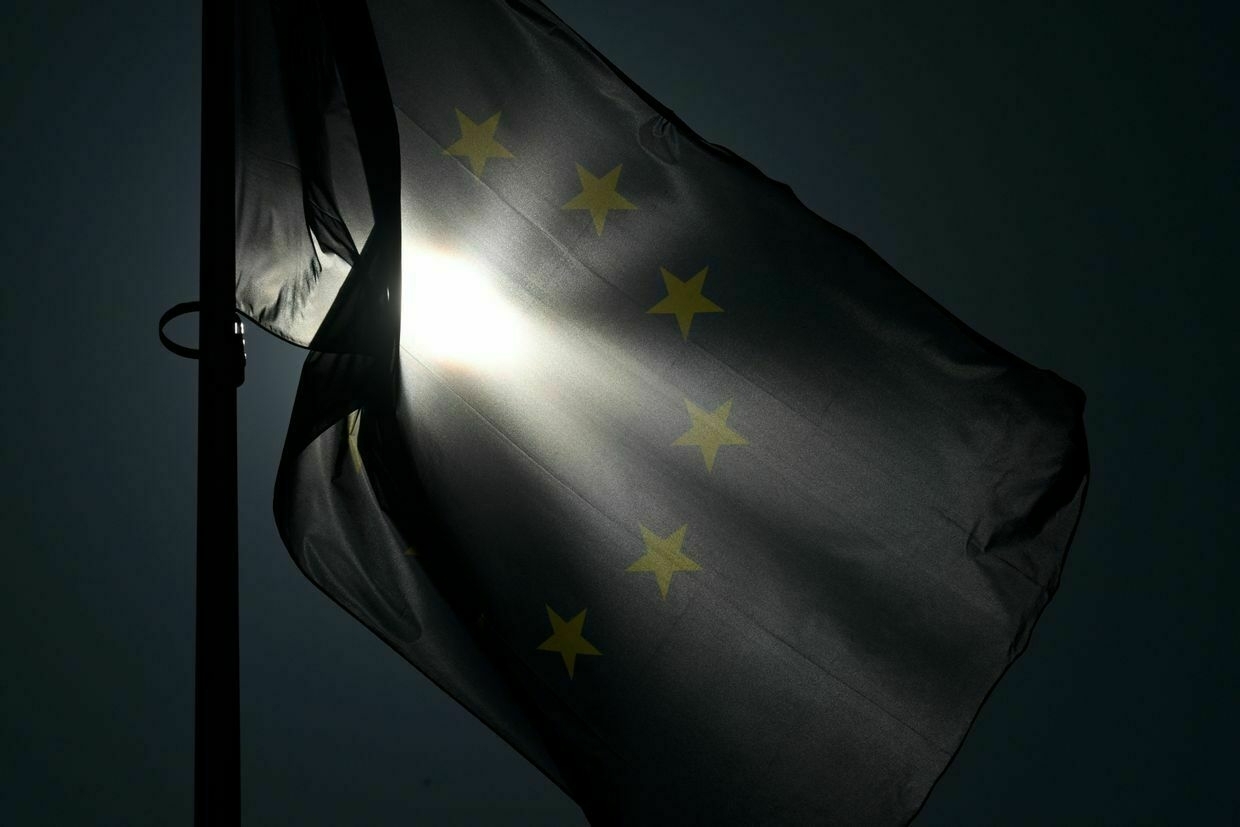
The EU is experiencing its highest ever approval rating among citizens amid growing concerns over global security, the EU Parliament’s Winter Eurobarometer survey published on March 25 has found.
The survey — which conducted 26,354 face-to-face interviews in all 27 EU countries — found that nearly three-quarters (74%) of EU citizens consider their country to have benefited from EU membership.
According to a summary of the survey, this is the “best result ever recorded since this question was first asked in 1983."
It also found that 66% of Europeans want the EU to play a more significant role in security and crisis protection, making it the leading public concern.
The results of the survey come amid dramatic shifts in geopolitics — U.S. President Donald Trump is actively moving his country away from the defense of Europe, and his negotiations with Russia have raised alarm bells in European capitals.
“The European Parliament will ensure that every proposal put forward is bold and ambitious enough to match the serious level of threat Europe faces. Europe must step up today, or it risks being stepped over tomorrow,” EU President Roberta Metsola said on March 25.
Defense and security was ranked as the highest policy priority by 36% of respondents, making it the top concern of those surveyed.
The last time the poll was conducted in summer 2024, the top concern was “improved cooperation between EU countries."
EU countries are now taking action to step up their defence capabilities, and voices calling for higher defense spending across NATO have only grown louder after Russia launched its full-scale invasion of Ukraine in 2022.
The survey also found 62% of respondents support expanding the European Parliament’s role, reflecting a demand for more decisive EU action.
Among other concerns, 43% urged the European Parliament to prioritize tackling inflation, rising prices, and the cost of living.
‘A lot of problems for Russia’ — How Ukraine’s new 3,000km drone could boost Kyiv’s war effortUkraine last week announced the latest advance in the ongoing drone race with Russia, saying its new variant had the longest range of any in its arsenal and had successfully completed testing. “Our drone with a 3,000-kilometer range has passed testing,” President Volodymyr Zelensky said during his…The Kyiv IndependentChris York
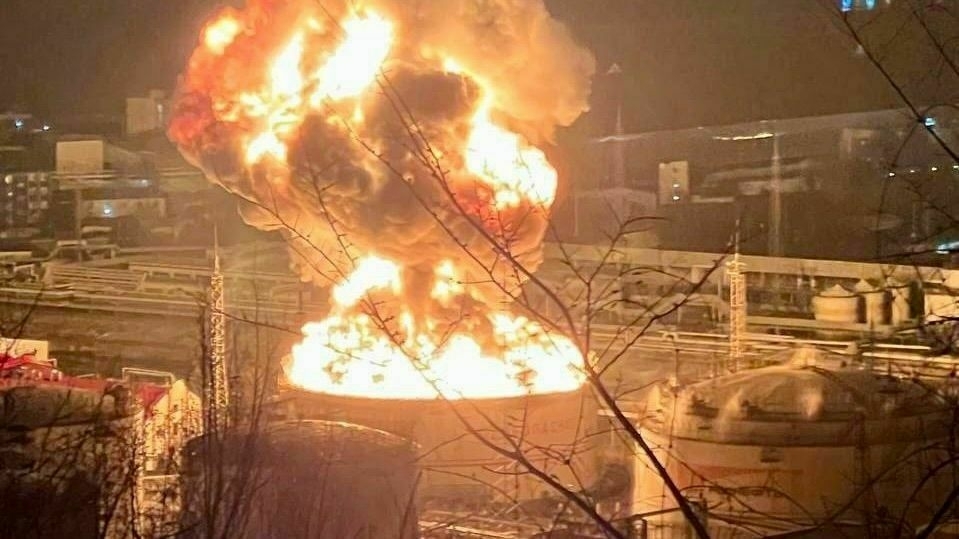
-
How DOGE scrapped the hunt for Ukraine’s missing children
Editor’s Note:
The last few weeks have been among the most stressful of the past three years.It’s a time of deep uncertainty and crisis in Ukraine.
Despite the challenges, we have forged ahead with original and unique reporting. Will you help us continue our intrepid work by upgrading to a paid sponsorship today?
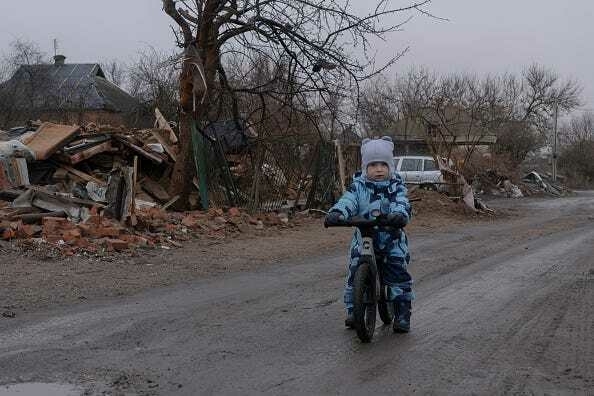
A child rides a bicycle near destroyed houses on January 10, 2025 in Zolochiv, Kharkiv Oblast, Ukraine. (Photo by Liubov Yemets/Gwara Media/Global Images Ukraine via Getty Images) "We made a hearse entering the city for a grandmother’s funeral, and hid a child inside [with the dead body] so that she could escape," said child rights expert Anhelina Kasianova, recalling a story that touched her the most while organizing the return of children from Russian-controlled territories.
There are thousands of such stories about the children abducted by Russia during the war.
Ukrainian parents, relatives, or volunteers must risk their lives, driving under Russian crosshairs, to bring their kids back from Russia or occupied territories.
But recent American actions are threatening these efforts.
Several weeks ago, without any public warning, the Department of Government Efficiency (DOGE) cut off funding for a group of Yale University researchers. Led by Elon Musk, this group was tasked with cutting the U.S. government’s spending.
The Yale researchers are known as the Humanitarian Research Lab, and they were helping to find and return Ukrainian children deported to Russia.
Over the last three years of its operation, they have accumulated a database of 35,000 children, which contained data on children kidnapped by Russia. The program cost a reported $26 million to put together.
For now, their work is halted.
The loss of this ongoing research will significantly complicate the prosecution of the highest-ranking Russian officials and the return of the children. And it sends a message to other authoritarian regimes: you can commit the worst types of war crimes, and the United States will not hold you accountable.
However, in a ray of hope, The Counteroffensive found that at least 20,000 of these children are already known to the Ukrainian government, with the data on separate Ukrainian lists.
Since the start of the full-scale invasion, Ukraine has managed to identify about 19,546 children who were illegally taken by Russia. Now Ukraine is booting up efforts to create its own search efforts that don’t rely on American input.
This DOGE-led fiasco happened precisely as the White House pressed Russia and Ukraine to begin peace negotiations, with one of the main demands from Ukraine being the return of kidnapped children.
The abduction of children is a step that the U.N. classifies as a signal that genocide is occuring, and Moscow has continuously transported children from occupied territories, placing them up for adoption by its citizens across Russia.
It was Yale researchers who assisted Ukraine in one of the most important aspects of the anti-abduction efforts — determining the current whereabouts of the children, so that at least some of them could be returned.
“If Russians continue to erase our identity by kidnapping our children and the rest of the world is just going to turn a blind eye to this, it's just terrible,” Anhelina said.
Anhelina is still only 22. But the issue of deported children is personal for her — because she could have been among them.
Russian forces first came to her home in Donetsk in 2014, and she was forced to leave it forever. Then, fighting came to her home a second time when she was living in Irpin during the Russian military's attempt to encircle Kyiv in 2022.
So in 2023 Anhelina joined the Ukrainian Child Rights Network, working on the return of abducted children. She started small — initially focusing on gathering information about where children might have been taken from Ukrainian orphanages and placed for Russian adoption. She searched Russian websites and Telegram channels for any clues about where the children could have been sent.
Later, the primary responsibility for organizing the return of the children largely fell on her. After identifying when a child has been abducted, the most difficult part remains.
Next are efforts to find the child’s current location, then establish contact — even if just by phone — before answering the question: who will go to pick up the child from Russian-controlled territory?
The American cuts have made the already complex process of returning children even harder.
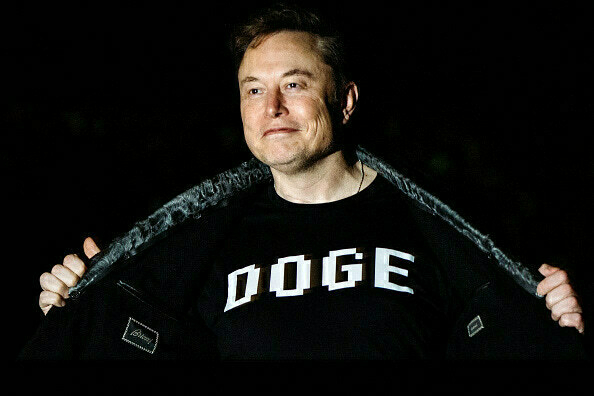
White House Senior Advisor Elon Musk walks to the White House after landing in Marine One on the South Lawn with U.S. President Donald Trump (not pictured) on March 9, 2025 in Washington, DC. (Photo by Samuel Corum/Getty Images) Last month, DOGE shut down one of the most powerful forces for the rescue of Ukrainian children: the Humanitarian Research Lab at Yale (HRL).
During the first year of the full-scale invasion, the Humanitarian Research Lab officially identified over 40 locations where more than 6,000 Ukrainian children were held.
“We know the number [of children and locations] is significantly higher. It's likely double that,” Raymond told The Counteroffensive.
HRL’s main method was analyzing metadata leaked online by Russian officials. This was done mostly at the mayoral level, because they found that deportations were mainly organized locally.
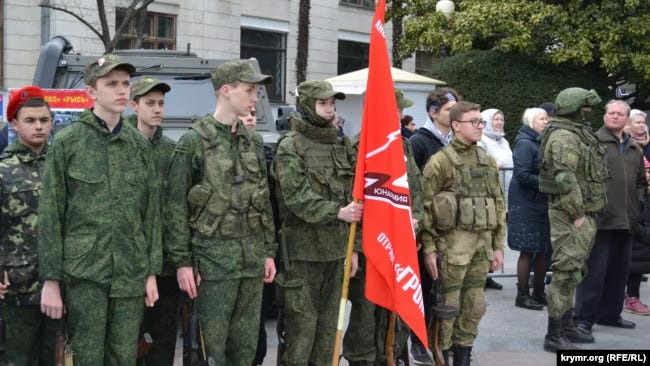
Initiation to the Unarmy, a Russian militarized organization for children, Yalta, Crimea, 2019. Source: [www.radiosvoboda.org](https://www.radiosvoboda.org/) In December 2024, the HRL published a comprehensive independent study identifying hundreds of deported Ukrainian children and the routes through which Russia is conducting its deportations.
Equally important, the study showed that the deportations of children were a part of a systematic, Kremlin-driven program to make them citizens of Russia.
Yale gave children names and locations to Ukraine’s Ombudsman for Human Rights, the National Police, and the Office of the Prosecutor General. Additionally, the research team provided them with specific transport routes Russia used to move the children.
However, after the DOGE cut off its funds, the National Police denied any cooperation with Yale’s HRL team. The Office of the Ombudsman and the Office of the Prosecutor General of Ukraine did not comment.
Nathaniel Raymond, who led the Yale research team, told The Counteroffensive that without HRL's work, Ukraine will lose four crucial capabilities to access:
the whereabouts of children that have been taken for re-education, adoption, military training, or similar purposes.
the names and files of children who have been moved and made Russian citizens.
the exact number of children Yale believes have been sent to Russia for re-education.
the forensic analysis of documents that explain how Russia makes these children citizens.

A wall clock with photos of two girls on it is seen among the rubble of the damaged house as emergency workers and firefighters carry out their work after the Russian drone attacks on Zaporizhzhia, Ukraine on March 21, 2025. (Photo by Zaporizhzhia Regional Military Administration / Handout/Anadolu via Getty Images) Following the DOGE cuts the Yale team at HRL lost access to a database containing information on 35,000 children that they had accumulated over three years.
This database was meant to be handed over to Europol, the EU law enforcement agency, to assist authorities in investigating crimes.
A group of congressmen, led by Republican Greg Landsman, reached out to the State Department, claiming in a letter to the Trump administration that the U.S. might delete all data related to Ukrainian children.
“The database included names of these children, biometric and satellite information – so that it was clear that we knew to the best of our ability where these kids were taken and where they are now,” Landsman said to The Counteroffensive.
The State Department denied that they had deleted the database.
When The Counteroffensive asked whether the U.S. plans to eventually transfer all the data collected by Yale University to Europol and the American authorities, the State Department spokesperson did not respond, only stating:
“The State Department does not hold the data for the Conflict Observatory [HRL is its subset]. The data resides on a platform owned by MITRE, the prime implementer for the program…President Trump promised to work closely with both parties to help make sure those children were returned home.”
MITRE, which manages Yale’s databases, did not respond to The Counteroffensive's immediate inquiry.
GOP Rep. Greg Landsman said that he expects that both the database and Yale’s research grant will be restored in the coming days.
“In a couple of days, it appears that the database will be put back online. I'll believe it when I see it – that the contract which [HRL] was terminated will be reissued,” he predicted.
Even if it returns to Yale's hands, it is uncertain whether the database will remain intact. And there are broader questions about America’s commitment to this kind of human rights work.
After the United States halted HRL's funds, they decided to withdraw from the group investigating responsibility for the Ukraine invasion, particularly the group working to hold Vladimir Putin accountable.
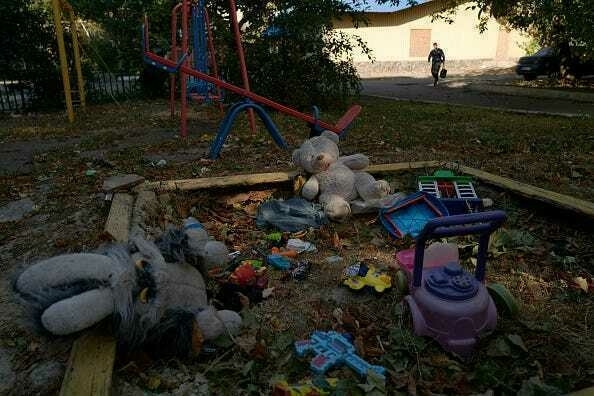
Toys are scattered across the playground after the children were evacuated on September 28, 2024 in Pokrovsk, Ukraine. (Photo by Pierre Crom/Getty Images) However, the Ukrainian side is more optimistic. Kateryna Rashevska, a board member of Bring Kids Back UA, initially doubted that the data had been permanently deleted.
“To store and accumulate such information, there can be no such action or operation without notifying Ukraine, as the state of citizenship of these children,” Kateryna Rashevska told The Counteroffensive.
Moreover, nearly 20,000 of the children in the Yale database have already been identified by Ukraine in some form. So a majority of the children will be accounted for through some other format.
Like in so many other ways, the latest development is impressing on Ukraine the need to be independent from the United States government.
Now the Ministry of Justice of Ukraine is actively working to create a new register for deported children, according to Rashevska.
NEWS OF THE DAY:
Good morning to readers; Kyiv remains in Ukrainian hands.
NEW ROUND OF UKRAINE-US TALKS: Ukraine and the United States have begun a new round of talks in Riyadh, Saudi Arabia, AFP reports. The day before, talks were held with Russia to discuss the US desire to cease fire in the Black Sea.
The Black Sea Initiative was a key topic of conversation. A similar agreement was concluded in 2022 between Ukraine and Russia with the mediation of the UN and Turkey, but in July 2023, Russia withdrew from this agreement. Since then, Ukraine's port infrastructure has been regularly attacked.
Following Russia's initial agreement to a ceasefire on energy and civilian infrastructure and the collapse of that agreement, there are concerns that Russia is dragging out the negotiations to consolidate its military gains in Ukraine and gain a more favorable position.
GOP SENATORS WANT TO GIVE UKRAINE RUSSIAN FROZEN ASSETS: A group of US senators are proposing using frozen Russian assets to put pressure on Moscow to cease fire, Reuters reports.
They sent the proposal in a letter to Secretary of State Marco Rubio. 4 senators (2 Republicans and 2 Democrats) signed the letter. The Trump administration is being urged to transfer more than $300 billion in frozen assets to help Ukraine.
Republicans and Democrats also propose using the available assets as leverage in the negotiations. This letter is one of the few examples of a GOP call to be tougher with Russia since the second Trump term began.
Some European leaders also want to use the frozen assets to rebuild Ukraine, but face legal challenges in doing so.
DUTCH ENCOURAGES UKRAINIAN DEFENSE INVESTMENT: Denmark will provide compensation to its companies that are willing to invest in the Ukrainian defense industry, Economichna Pravda reports. This was announced by the First Vice Prime Minister of Economy of Ukraine. The total amount in the program is 130 million euros. This instrument actively supports both Danish business and Ukrainian enterprises, the minister said.
DOGS OF WAR:
Today’s Dogs of War are these cuties Nastia spotted at her weekend getaway in Chernivtsi (a city in Western part of Ukraine). They were impatiently waiting for their owners near the railway station, while they moved baggage to the car.
Stay safe out there.
Best,
Nastia -
Russia backs resuming Black Sea Initiative in more 'acceptable' form, Lavrov says
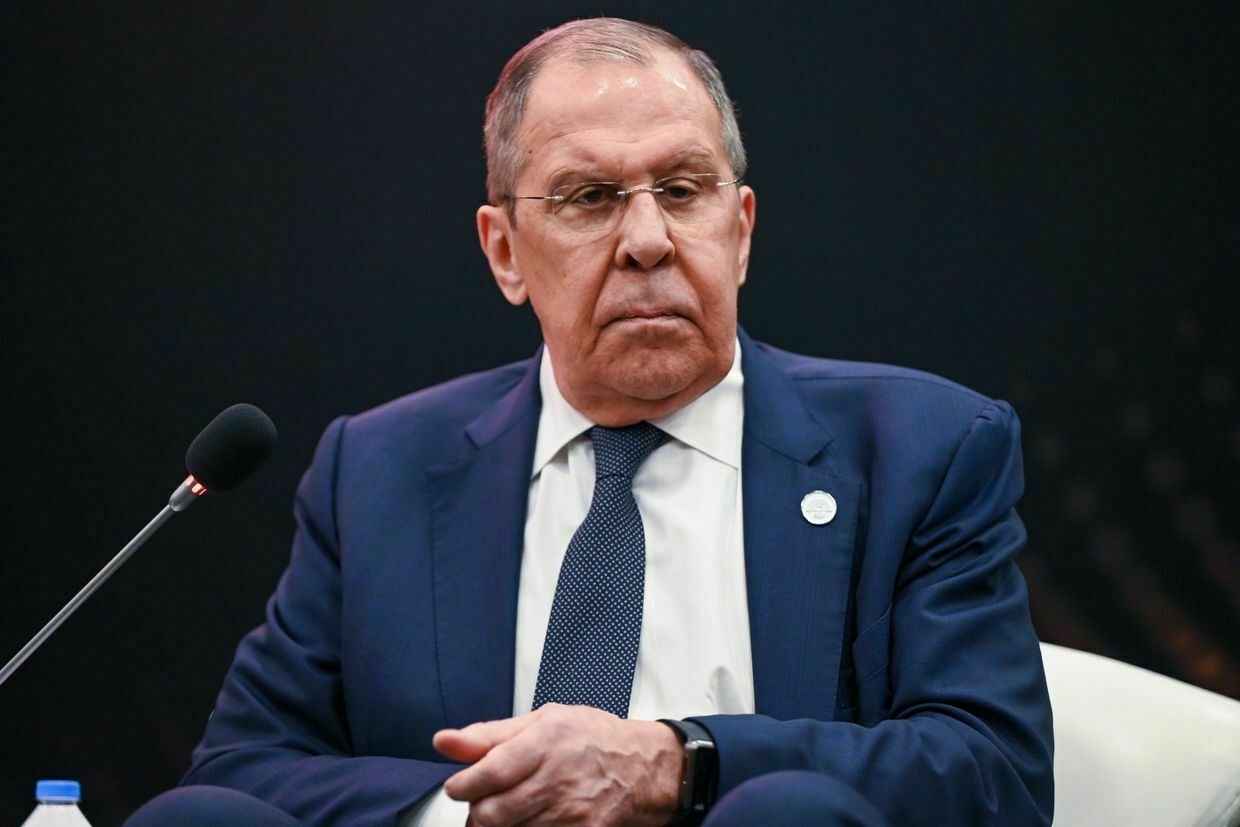
Russian Foreign Minister Sergey Lavrov said on March 25 that Moscow supports the resumption of the Black Sea Initiative in a form “more acceptable to everybody,” state-owned news agency TASS reported.
Lavrov confirmed that the issue was the focus of the 12-hour Russian-U.S. talks in Riyadh on March 24.
The so-called Black Sea Grain Initiative was first brokered by the U.N. and Turkey in 2022 to allow Ukraine to ship out its grain despite Russia’s ongoing invasion.
The deal broke down a year later after Russia withdrew from the deal, claiming that its demands, namely pertaining to its fertilizer industry, had not been addressed.
Lavrov reiterated that Russia needs “the grain market, the fertilizer market to be predictable” to ensure its position there.
Despite the initial deal breaking down in 2023, Ukraine has managed to unilaterally reopen the Black Sea corridor, in large part thanks to a sustained drone and missile campaign against the Russian Black Sea Fleet.
A potential U.S.-Russia deal sparked concerns among some countries in the Black Sea region that the agreement would be favorable to Moscow, allowing it to expand its Navy’s operational area.
“Considering the sad experience with agreements with Kyiv only, only an order from Washington to (Ukraine’s President Volodymyr) Zelensky and his team can provide guarantees,” the Russian diplomacy chief said.
The Kremlin refused to provide details on the March 24 talks, describing them as “technical.” The negotiations were followed by a brief meeting between the U.S. and Ukrainian delegations in Riyadh a day later.
Ukraine’s team previously met the U.S. delegates in the Saudi capital also on March 23 to discuss technical aspects of the proposed ceasefire in Ukraine.
U.S. President Donald Trump has sought to broker a ceasefire between Russia and Ukraine as a step toward a broader peace deal. Though Washington and Kyiv initially agreed on a full 30-day truce, Russian President Vladimir Putin rejected this proposal in a phone call with Trump on March 18, agreeing only to a temporary pause on attacks against energy facilities.
Kyiv supported a mutual halt on energy strikes but later accused Russia of continuing attacks against Ukraine’s civilian targets.
Editorial: What Steve Witkoff doesn’t get about Ukraine (and Russia)In any negotiation, one of the most powerful weapons is knowledge. In that regard, Steve Witkoff is willfully disarmed. And it’s playing just right for Russia. The interview that Witkoff, Trump’s special envoy, gave to Tucker Carlson a few days ago revealed a truth that was perceived especiallyThe Kyiv IndependentThe Kyiv Independent
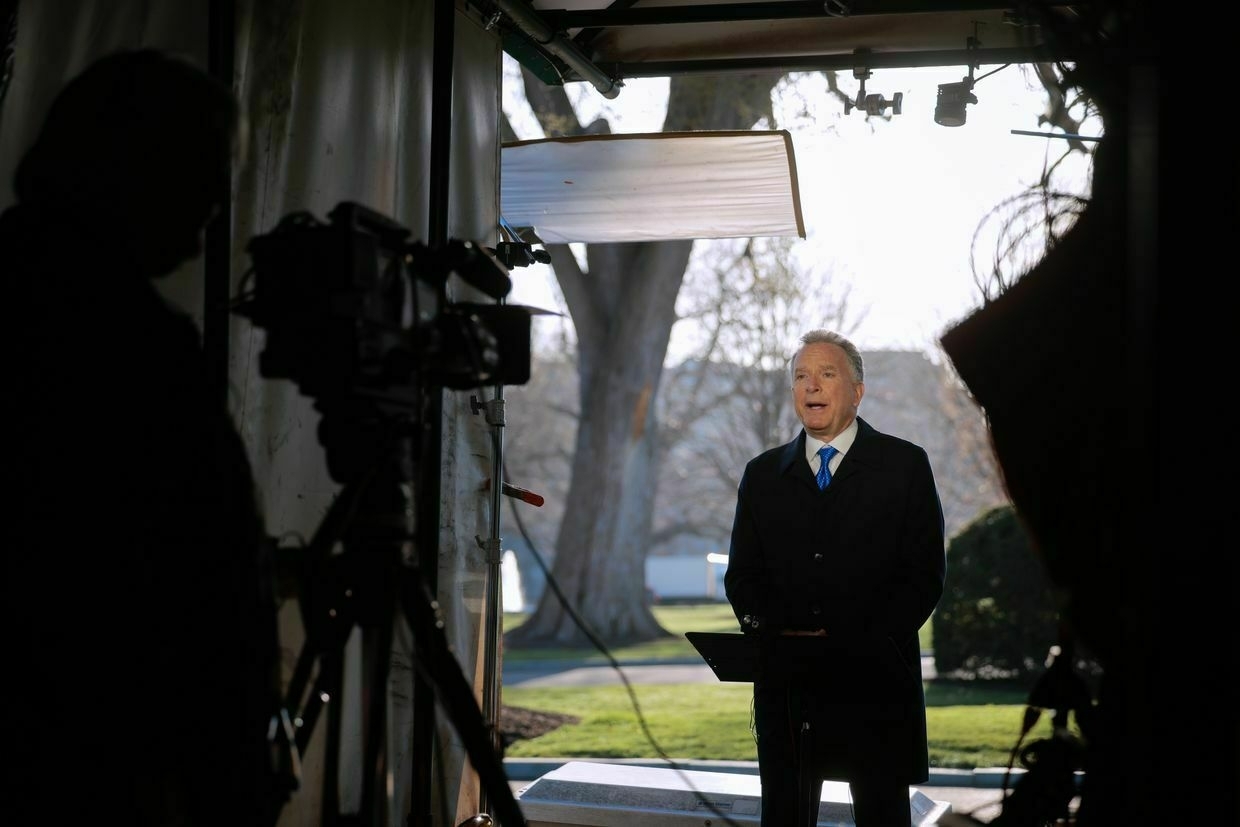
-
Macron to reportedly host Zelensky in Paris on March 26 ahead of security summit
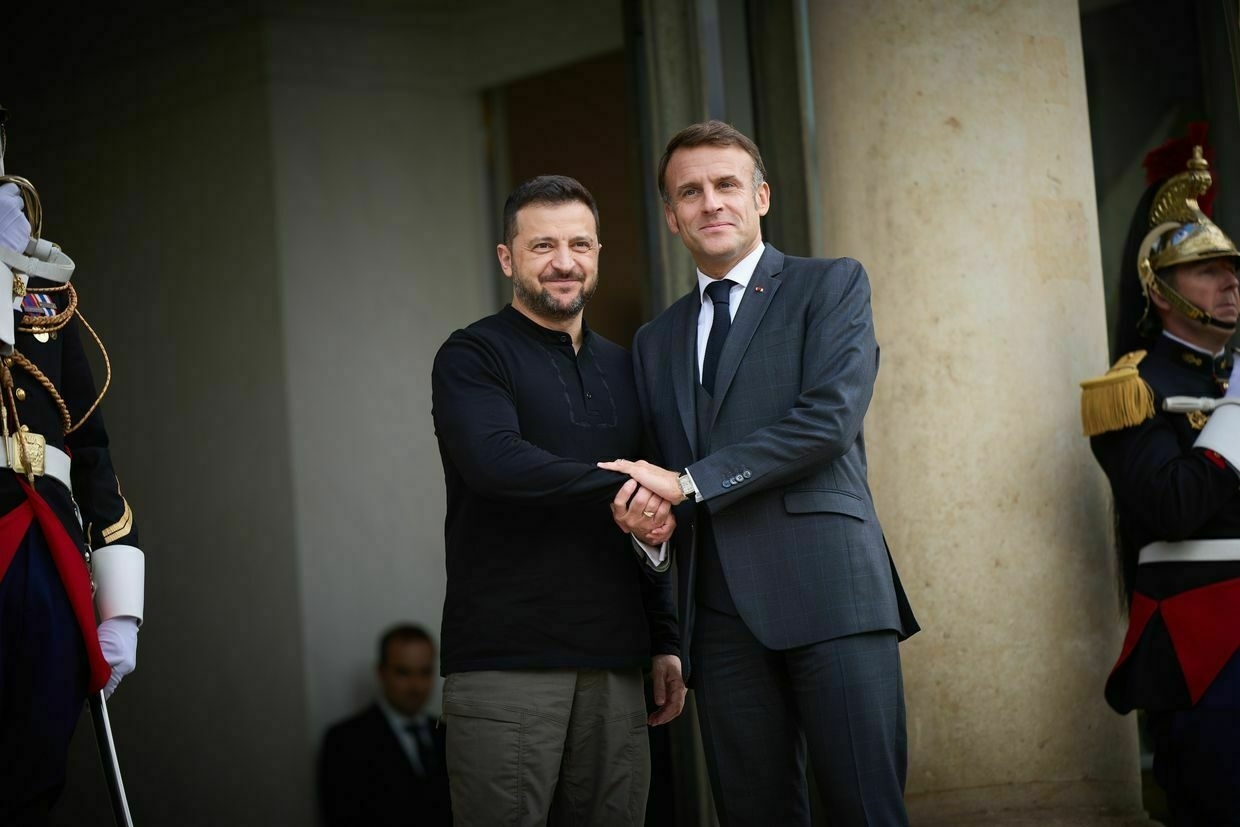
French President Emmanuel Macron will host President Volodymyr Zelensky at the Elysee Palace on March 26 to discuss security guarantees for Ukraine ahead of the “coalition of the willing” summit, Le Monde reported on March 25.
The Paris summit on March 27 will bring together Germany, Poland, the U.K., and other coalition members who have pledged to support Ukraine’s post-war security.
The initiative was first introduced by British Prime Minister Keir Starmer during a March 2 summit in London, where European and other leaders discussed support for Kyiv.
Over 30 countries have expressed willingness to contribute to the coalition’s peacekeeping force, Starmer’s spokesperson said on March 17, confirming that the initiative has entered an “operational phase."
U.S. President Donald Trump claimed on Feb. 24 that Russian President Vladimir Putin would allow European peacekeepers in Ukraine as part of a settlement, though Russian Foreign Minister Sergey Lavrov publicly rejected the idea.
During his meeting with Zelensky, Macron is also expected to reaffirm France’s commitment to increasing military and financial aid for Ukraine, according to Le Monde.
On March 13, France’s National Assembly passed a resolution calling for enhanced support for Kyiv and the seizure of frozen Russian assets.
Content of US-Russia talks in Riyadh ‘will definitely not be published,’ Kremlin says“We are talking about technical negotiations. These negotiations are immersed in details, so, of course, the content of these negotiations will definitely not be published. This is not to be expected,” Kremlin spokesperson Dmitry Peskov said.The Kyiv IndependentTim Zadorozhnyy
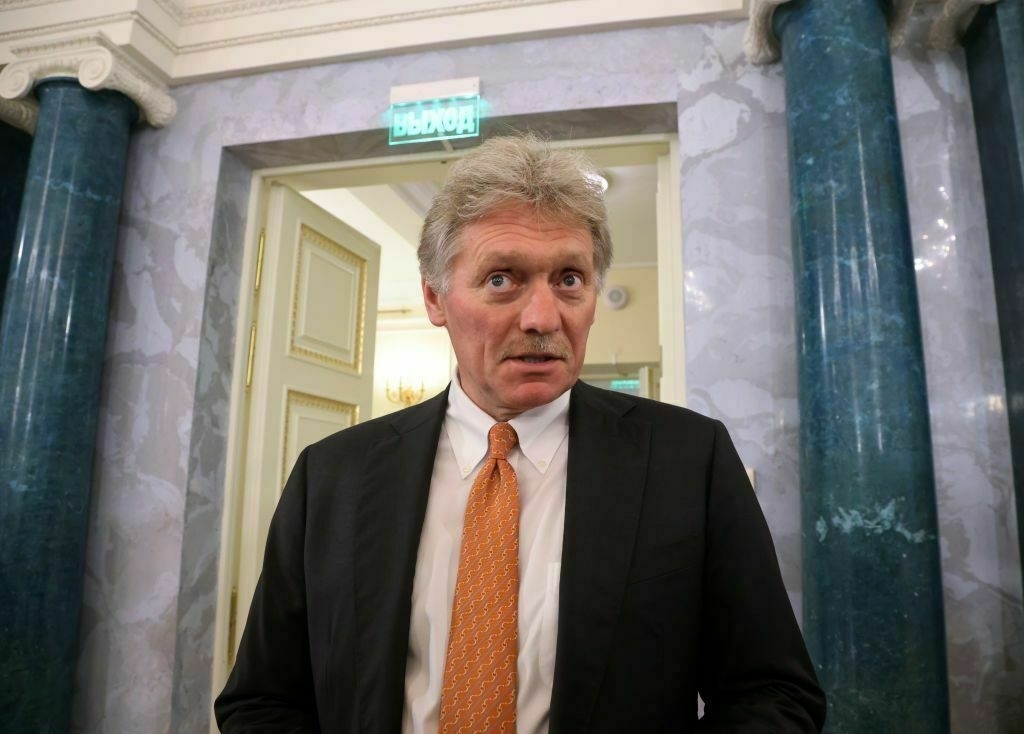
-
USAGM agrees to partially fund RFE/RL as judge weighs case over Trump cuts
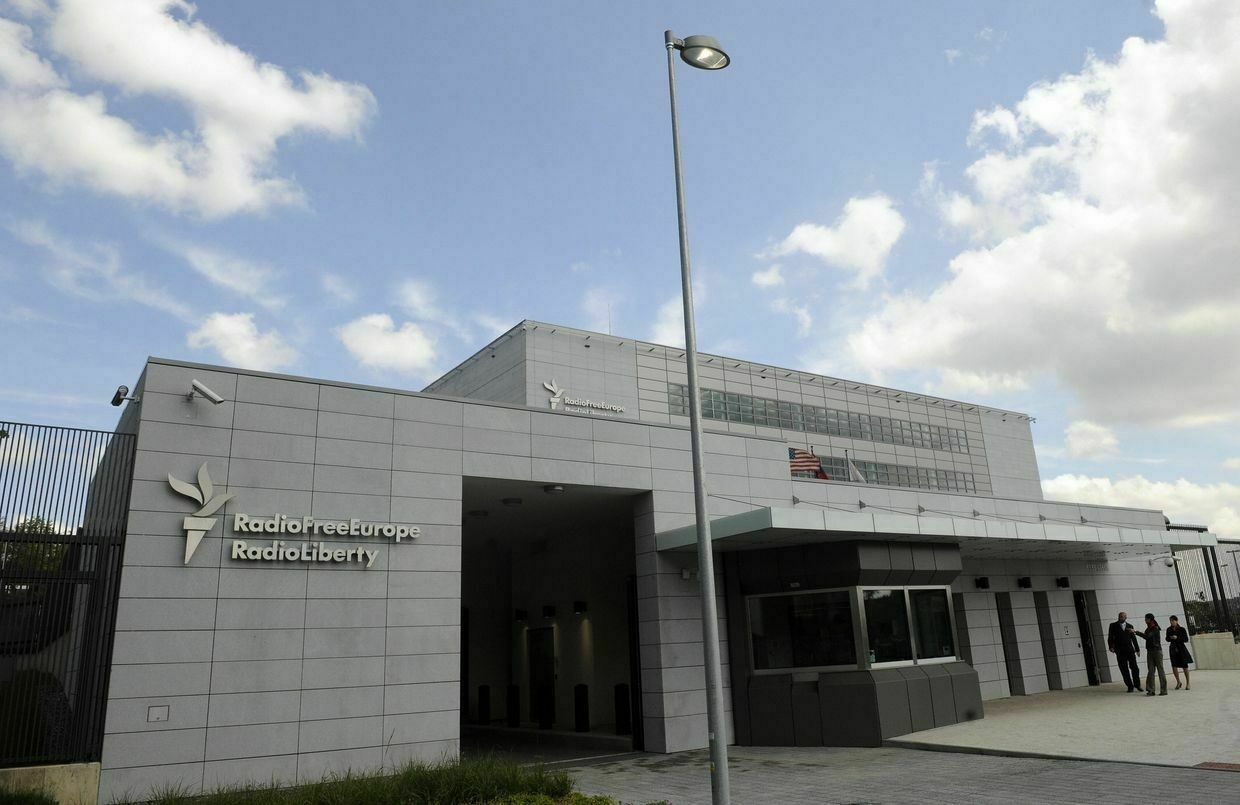
The U.S. Agency for Global Media (USAGM) has agreed to allocate part of the funds allocated by Congress to Radio Free Europe/Radio Liberty (RFE/RL), as a judge reviews a case over the cancellation of its funding, RFE/RL reported on March 24.
The congressionally authorized grant funding for RFE/RL was terminated earlier this month after U.S. President Donald Trump ordered USAGM, a government agency overseeing RFE/RL, Radio Free Asia, and Voice of America, to be dismantled.
RFE/RL sued USAGM on March 18 over the termination of grant funding, arguing that the step violates federal laws and the U.S. Constitution.
The decision to release part of the funds by March 26 was announced hours before a hearing in a U.S. federal court in Washington, D.C. The funding suspension threatened the media organization’s continued operation.
RFE/RL President and CEO Stephen Capus expressed hope the release of two weeks’ funding would sustain the broadcaster until the court rules on the case.
He said denying RFE/RL funds was unlawful, as “the (U.S.) Constitution grants Congress the exclusive power of the purse.”
At a court hearing on March 24, USAGM’s lawyer Abigail Stout argued the agency can terminate its grant agreement with RFE/RL if the broadcaster fails to meet its terms. RFE/RL is seeking full 2025 funding and a court injunction to secure it.
In response, a lawyer representing RFE/RL said “it would make no sense” to allow agencies to withdraw funding already approved by Congress.
RFE/RL was founded early in the Cold War to counter Soviet propaganda in Eastern Bloc countries. It has since continued providing coverage of Ukraine, Russia, Belarus, and countries in Central Asia, the Balkans, the Caucasus, and elsewhere.
Some European leaders announced they may proceed to help RFE/RL with funding. Martin Dvorak, the Czech European affairs minister, said on March 18 that the Czech initiative to fund RFE/RL has already received backing from 10 countries.
U.S. courts have previously sought to stall some of the executive’s most radical cuts, which were presented as an effort to slash waste, including the gutting of the U.S. Agency for International Development (USAID).
Trump’s allies have publicly questioned the court’s jurisdiction over the executive branch’s decisions, raising concerns about a looming constitutional crisis.
‘A lot of problems for Russia’ — How Ukraine’s new 3,000km drone could boost Kyiv’s war effortUkraine last week announced the latest advance in the ongoing drone race with Russia, saying its new variant had the longest range of any in its arsenal and had successfully completed testing. “Our drone with a 3,000-kilometer range has passed testing,” President Volodymyr Zelensky said during his…The Kyiv IndependentChris York
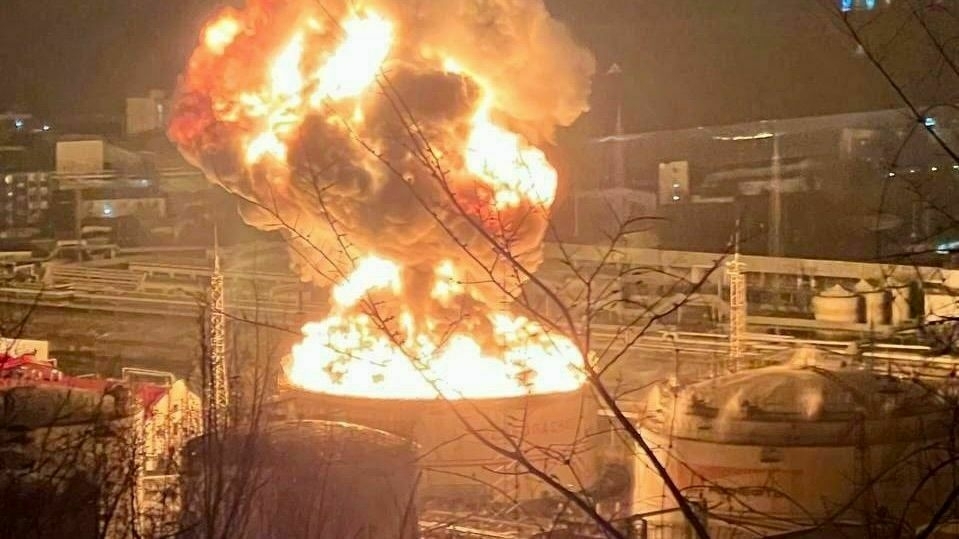
-
Lukashenko 'inaugurated' after extending his rule in 'sham' elections
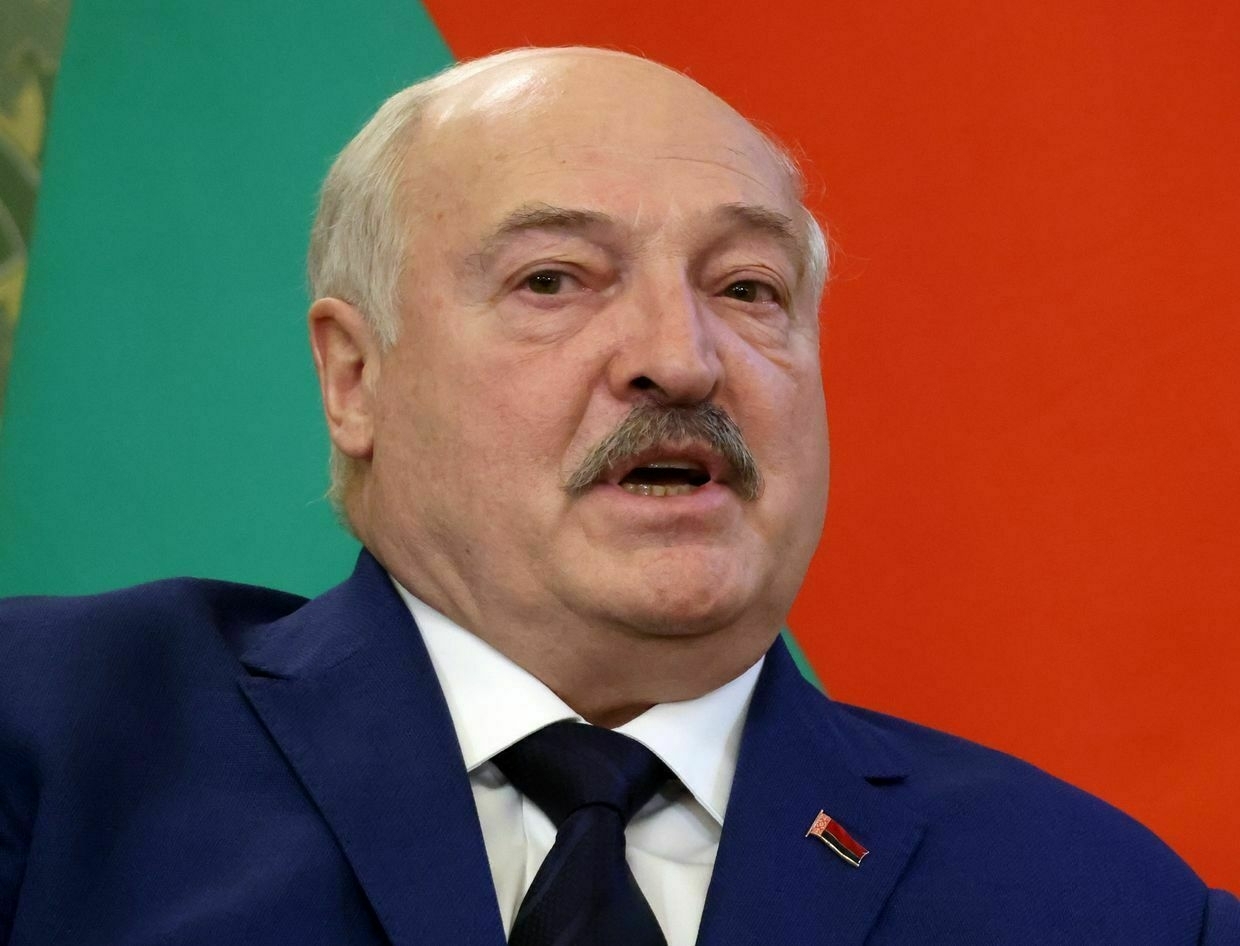
Belarusian dictator Alexander Lukashenko began his seventh term in power on March 25 after declaring himself the winner of the January elections broadly seen as neither fair nor free.
In his inauguration address at the Independence Palace in Minsk, Lukashenko said that Belarus “has its own standards for holding elections, which can become an international benchmark."
The Belarusian Election Commission claimed that Lukashenko “won” 86.82% of the vote on Jan. 26, followed by regime-approved and little-known candidates like Sergey Syrankov with 3.21% or Oleg Gaidukevich with 2.02%.
In power since 1994, Lukashenko’s dictatorial rule has been marked by a harsh crackdown on political opposition, free media, and civil society.
In his speech, the dictator claimed that Belarus ensures everyone’s opportunity to express their opinion but “will not allow freedom of speech to be used as a club to destroy our own country."
A day before the inauguration, 10 Belarusian human rights groups denounced the January presidential elections and Lukashenko’s continued hold on power.
The latest vote was “held in a deep human rights crisis, in an atmosphere of total fear caused by repressions against civil society, independent media, the opposition, and all dissenters,” the statement read.
In 2020, Lukashenko also declared himself the winner despite independent pollsters saying that his opponent, independent candidate Sviatlana Tsikhanouskaya, won the most votes. The election fraud sparked mass protests, which were followed by a violent crackdown and mass arrests.
Lukashenko has been a key ally of Russian President Vladimir Putin during Russia’s full-scale invasion of Ukraine, allowing Moscow’s forces to use Belarus as a launching ground for the invasion of Kyiv and missile attacks in 2022.
Belarus Weekly: Lukashenko signs security treaty, pulling Belarus further into Russia’s orbitBelarus dictator Alexander Lukashenko visits Moscow, enacting a security treaty and signing a range of agreements that pull Belarus further into Russia’s orbit. U.S. President Donald Trump slashes RFE/RL funding in another blow to Belarusian media in exile. Latvia restricts movement at last open b…The Kyiv IndependentMaria Yeryoma
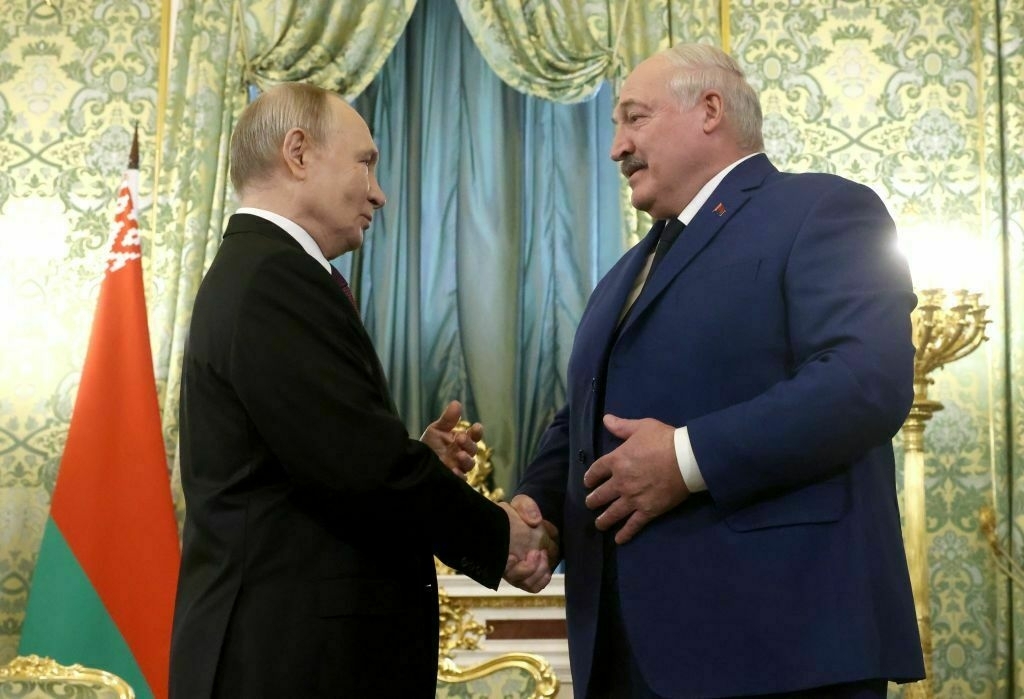
-
77% of Ukrainians positive about 30-day ceasefire, poll shows
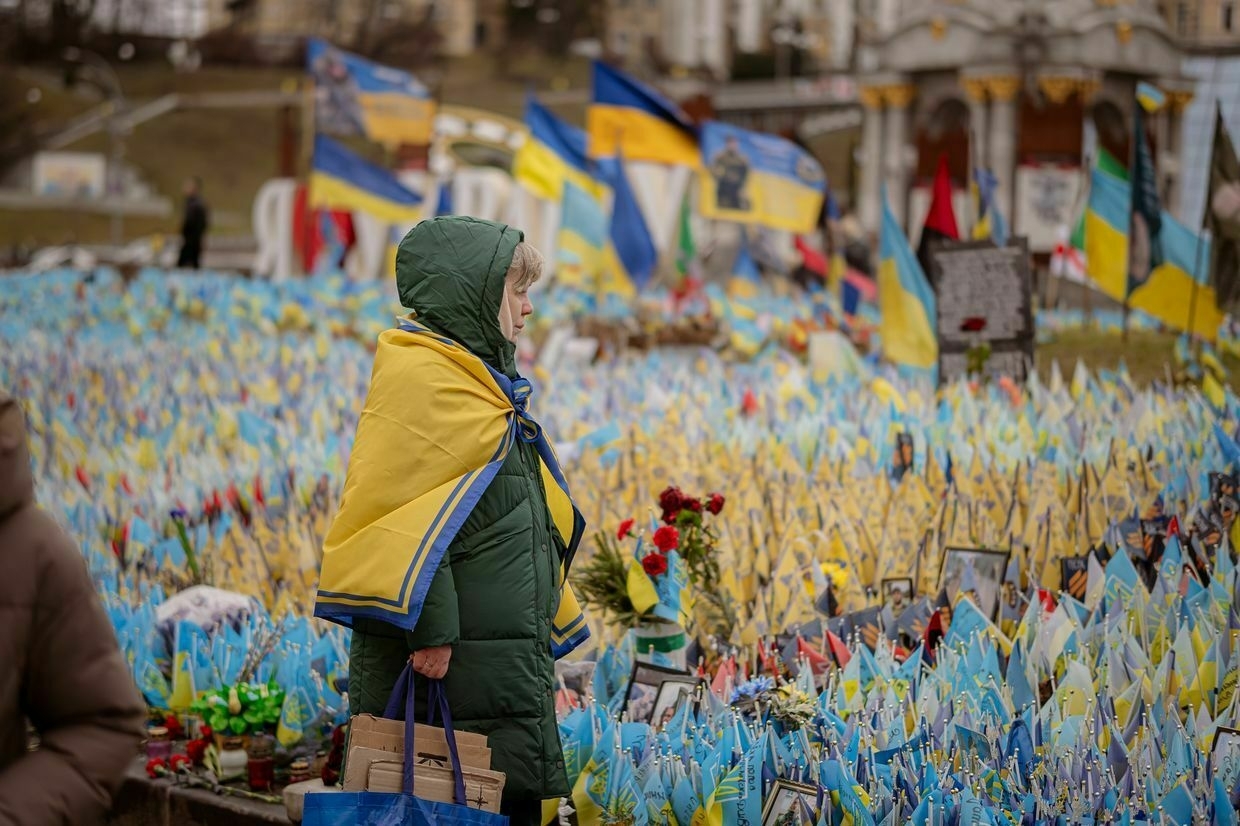
Around 77% of Ukrainians view the proposed 30-day ceasefire positively, according to an Omnibus opinion poll conducted by the Kyiv International Institute of Sociology and published on March 25.
In turn, 17% of Ukrainians expressed negative views toward the idea: 8% believe it would weaken Ukraine, 7% see it as a desperate move by the Ukrainian authorities due to the challenging situation at the front, and 2% consider it a step toward Ukraine’s surrender.
The U.S. and Ukraine initially supported a broader 30-day ceasefire, including a halt to ground operations, but Russia rejected the proposal unless it included conditions that would weaken Ukraine’s defense capabilities, such as a suspension of foreign military aid.
Before the proposed conditions, 47% of respondents who viewed the ceasefire positively believed it would expose Russia’s unwillingness to negotiate in good faith.
Between March 19 and March 21, opposition to Russia’s ceasefire conditions increased sharply. Around 79% of respondents deemed Russia’s conditions categorically unacceptable, while only 16% were willing to consider them, including 14% who found the terms difficult but not entirely dismissible.
The Kremlin later claimed that it had ordered a 30-day halt to strikes on Ukraine’s energy infrastructure following a phone call between U.S. President Donald Trump and Russian President Vladimir Putin.
Kyiv also supported a mutual halt on energy strikes but later accused Russia of continuing attacks on civilian targets.
An overwhelming 82% of Ukrainians believe Kyiv should continue fighting regardless of external circumstances. Even in the event of a complete halt on U.S. military support, only 8% said they would lean toward surrender.
If the ceasefire comes without security guarantees, 62% would strongly oppose it, while 32% would reluctantly support it. Should Ukraine secure even minimal security guarantees, more than half of respondents would accept the truce.
The poll was conducted through computer-assisted telephone interviews (CATI) using a random sample of mobile phone numbers across government-controlled regions of Ukraine. A total of 1,326 respondents were interviewed.
Ukraine, US conclude another round of talks in Riyadh, media reportsUkrainian and U.S. delegations are scheduled to meet in Riyadh, Saudi Arabia, on March 25, AFP reported, citing a source within the Ukrainian delegation.The Kyiv IndependentTim Zadorozhnyy
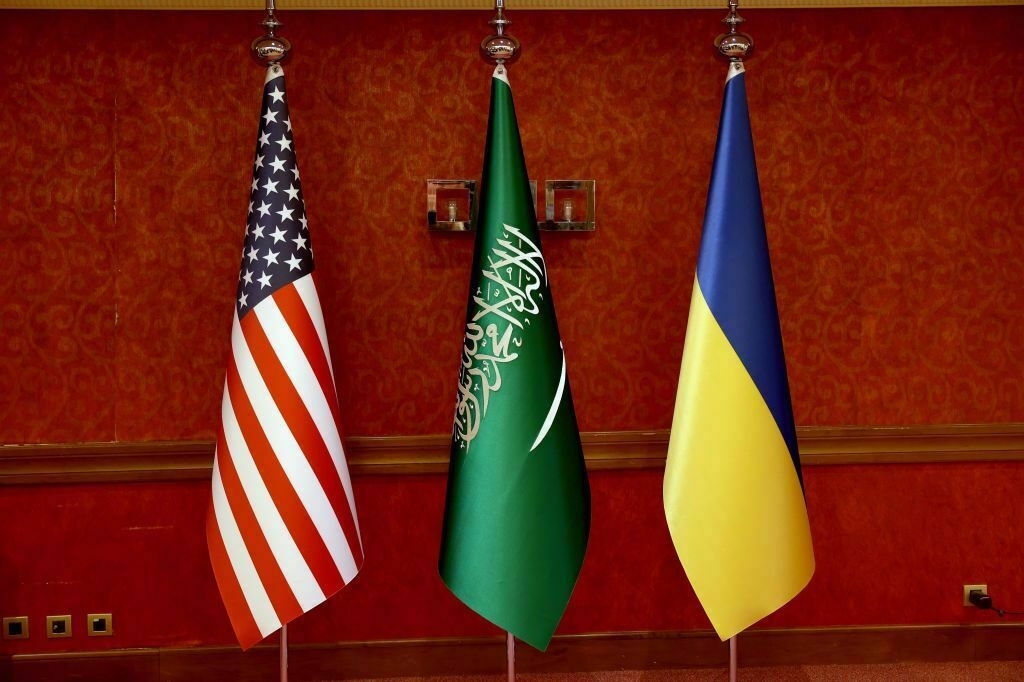
-
Content of US-Russia talks in Riyadh 'will definitely not be published,' Kremlin says
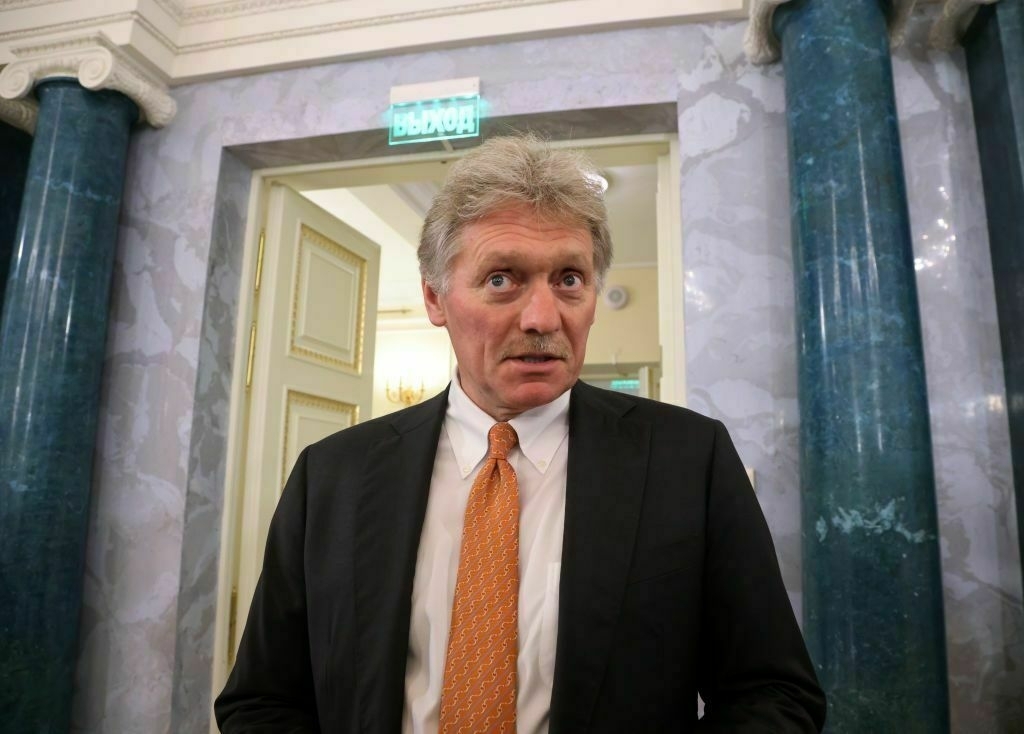
The content of the U.S.-Russia talks in Riyadh will not be made public, Kremlin spokesperson Dmitry Peskov said on March 25, state-owned media outlet TASS reported.
“We are talking about technical negotiations. These negotiations are immersed in details, so, of course, the content of these negotiations will definitely not be published. This is not to be expected,” the spokesperson said.
Peskov added that the results of the consultations had been relayed to Moscow and Washington and are currently under review.
His remarks came after 12 hours of U.S.-Russia negotiations on March 24. A new round of U.S.-Ukraine talks took place on March 25, following an initial meeting on March 23.
The negotiations are part of U.S. President Donald Trump’s ongoing efforts to broker a ceasefire and a broader peace agreement in Ukraine.
The U.S. initially planned to meet with both Ukraine and Russia on the same day, but President Volodymyr Zelensky later announced that Kyiv’s delegation would meet with U.S. officials on March 23, a day before the U.S.-Russia talks.
Peskov confirmed on March 24 that the Black Sea Initiative was a key topic in the U.S.-Russia talks in Riyadh. Similar agreements existed under the 2022 Black Sea Grain Initiative, brokered by the U.N. and Turkey.
Despite the ongoing war, this initiative allowed Ukraine to export agricultural products via the Black Sea. The deal, which helped stabilize global food prices, collapsed in July 2023 when Moscow withdrew.
Since then, Russian forces have repeatedly targeted Ukrainian port infrastructure.
A Russian ballistic missile struck Odesa’s port on March 1, damaging facilities and a Panamanian-flagged civilian ship. Several other foreign vessels have been hit, including in October 2024, when multiple ships sustained damage in separate Russian strikes.
According to Reuters, the U.S. delegation in Riyadh was led by Andrew Peek, a senior director at the National Security Council, and Michael Anton, a senior State Department official.
The Russian delegation included Grigory Karasin, the chairman of the Federation Council Committee on International Affairs, and Sergei Beseda, an adviser to FSB director Alexander Bortnikov.
Karasin later described the talks as proceeding in a “creative way,” saying the U.S. and Russian delegations “understand each other’s views,” as quoted by Russian state news agency Interfax.
The negotiations come amid concerns that Moscow is deliberately stalling peace efforts to strengthen its position. The Kremlin claimed last week that it had ordered a 30-day halt to strikes on Ukraine’s energy infrastructure following a phone call between Trump and Putin.
Kyiv also supported a mutual halt on energy strikes but later accused Russia of continuing attacks on civilian targets.
The U.S. and Ukraine initially backed a broader 30-day ceasefire that would include halting ground operations, but Russia rejected the proposal unless it included conditions that would undermine Ukraine’s defense capabilities, such as suspending foreign military support.
Ukraine US begin new round of talks in Riyadh, media reportsUkrainian and U.S. delegations are scheduled to meet in Riyadh, Saudi Arabia, on March 25, AFP reported, citing a source within the Ukrainian delegation.The Kyiv IndependentTim Zadorozhnyy
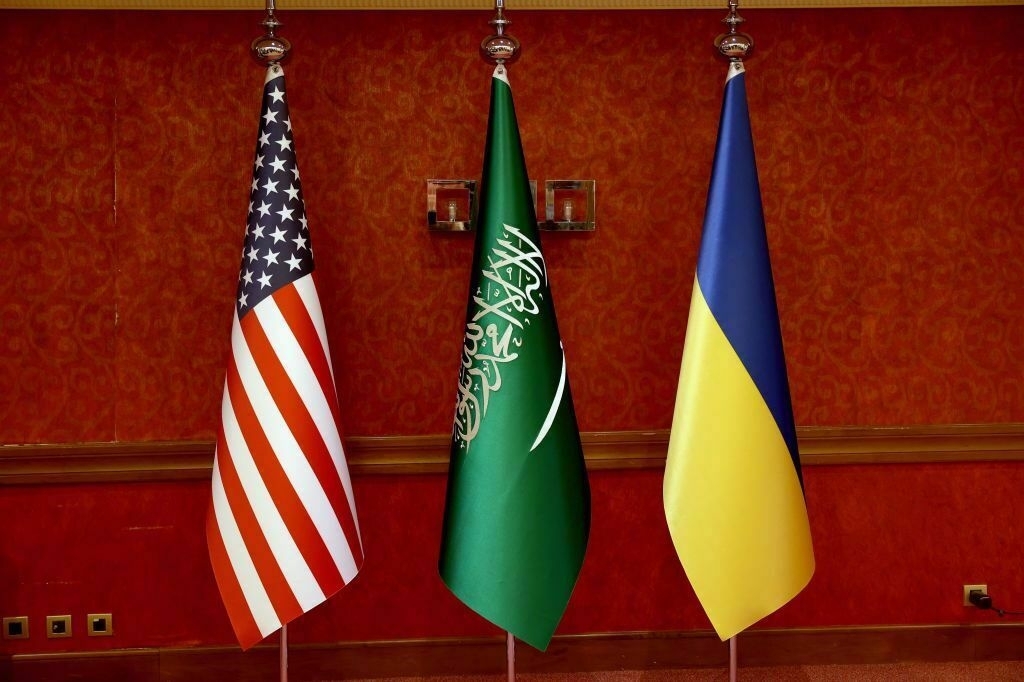
-
62% of foreign companies from 'unfriendly' states exit Russia amid war, media reports
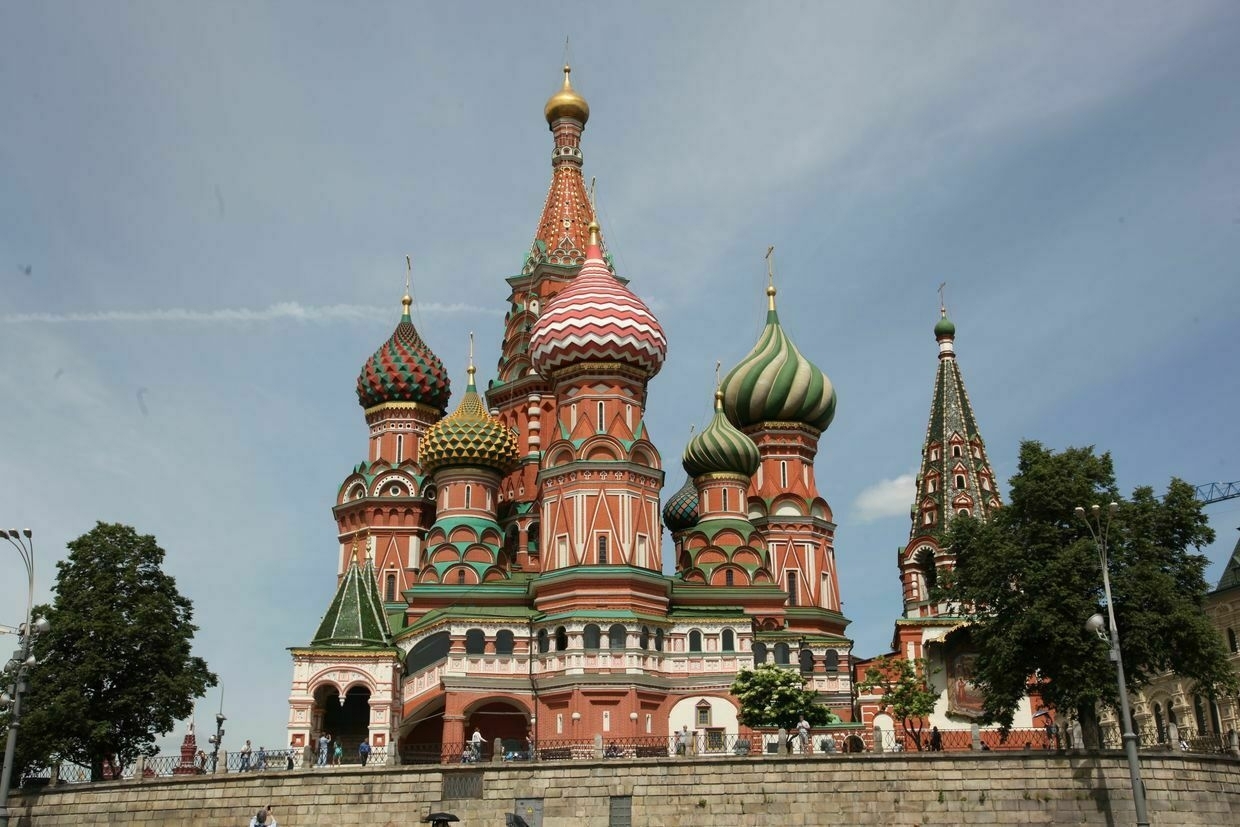
In three years of full-scale war against Ukraine, 62% of companies from countries deemed “unfriendly” by Moscow have exited the Russian market, pro-Kremlin media outlet RBC reported on March 25, citing an audit by consulting firm Kept.
The analysis covered over 300 foreign firms with “significant assets” and annual revenue of at least 1 billion rubles ($12 million) in Russia. Of these, 183 companies had fully withdrawn by the end of 2024.
Most firms sold their assets to Russian businesses (103 cases) or local management (40 cases). In 17 instances, foreign owners withdrew from joint ventures with Russian partners, while 14 companies shut down or suspended operations.
Companies from Northern Europe had the highest exit rate, with 94% leaving Russia. Finland led with all 20 companies in the sample exiting, followed by Sweden (13 out of 15), Norway, and Iceland (both 100%). Denmark lagged slightly, with 74% of its firms having exited.
Exit rates among major Western economies varied significantly. The U.S., Germany, France, and the U.K. saw rates between 59-67%, while Canada, Australia, and New Zealand recorded a full 100% exit. In contrast, Austria had a 50% rate, Switzerland 38%, and Italy only 22%.
Ukraine’s precision airstrike kills up to 30 Russian soldiers in Kursk Oblast, military claimsUkraine’s Air Force struck a concentration of Russian military personnel in Kondratovka, Kursk Oblast, killing up to 30 Russian soldiers.The Kyiv IndependentTim Zadorozhnyy
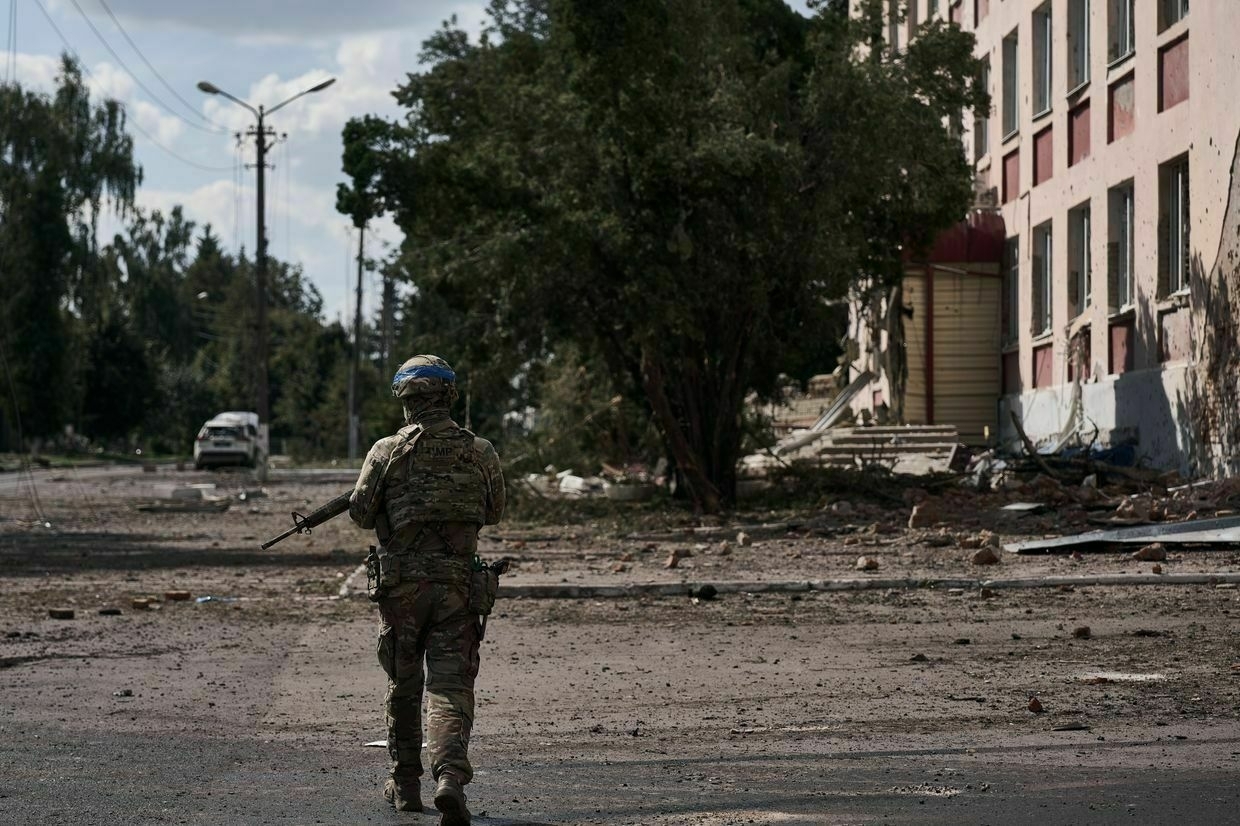
For 96 companies — about a third of the sample — no exit information was available, and most continued normal operations, the outlet wrote.
The statistics come amid efforts by Russian President Vladimir Putin to lure back Western firms. On Feb. 21, he instructed his Cabinet to prepare for their return while ensuring “certain advantages” for Russian businesses over re-entering foreign companies.
Since Russia’s full-scale invasion of Ukraine in 2022, hundreds of Western companies have left, unwilling to contribute to the Russian economy or war effort.
According to the Kyiv School of Economics, 472 foreign firms have fully withdrawn, while another 1,360 have scaled back operations.
Moscow has imposed strict exit conditions, including government approval, a mandatory 50% discount on asset sales, and a 10% “exit tax.” The Kremlin has also seized assets from subsidiaries of Western firms that remained operational.
Despite these measures, some foreign businesses have found ways to continue operations in Russia or have quietly re-entered after a temporary pause.
Hegseth denies leaking war plans in Signal chat while White House says messages appear ‘authentic’Jeffrey Goldberg, editor-in-chief of the Atlantic, claims he was mistakenly added to a private Signal chat where Trump administration officials discussed strikes on Yemen.The Kyiv IndependentTim Zadorozhnyy
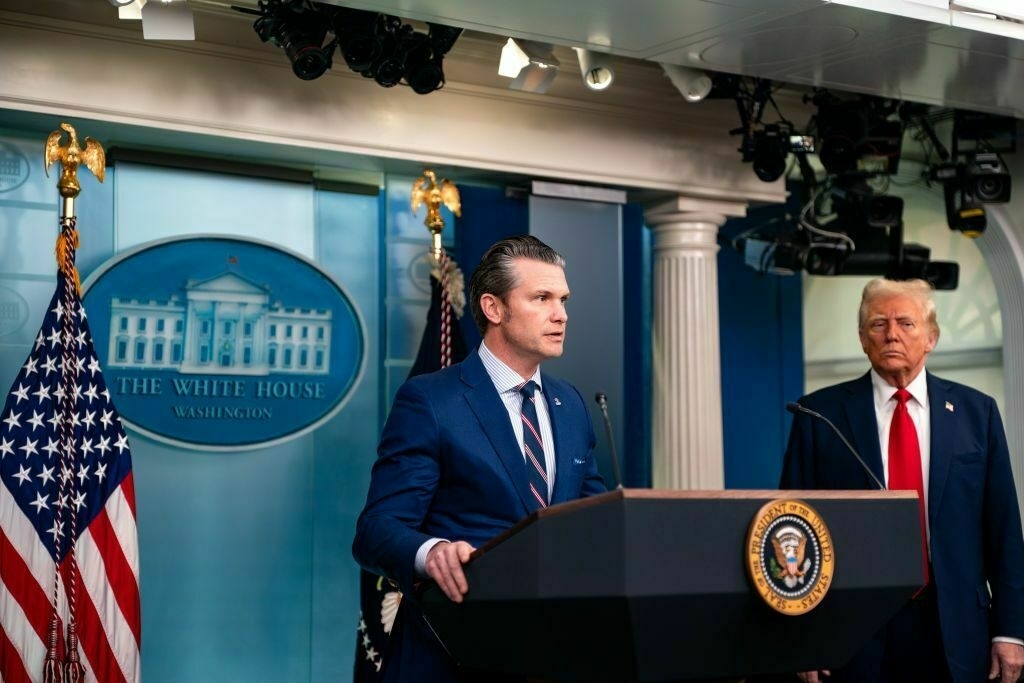
-
UN, 'individual countries' to be involved in Ukraine peace talks, Moscow says
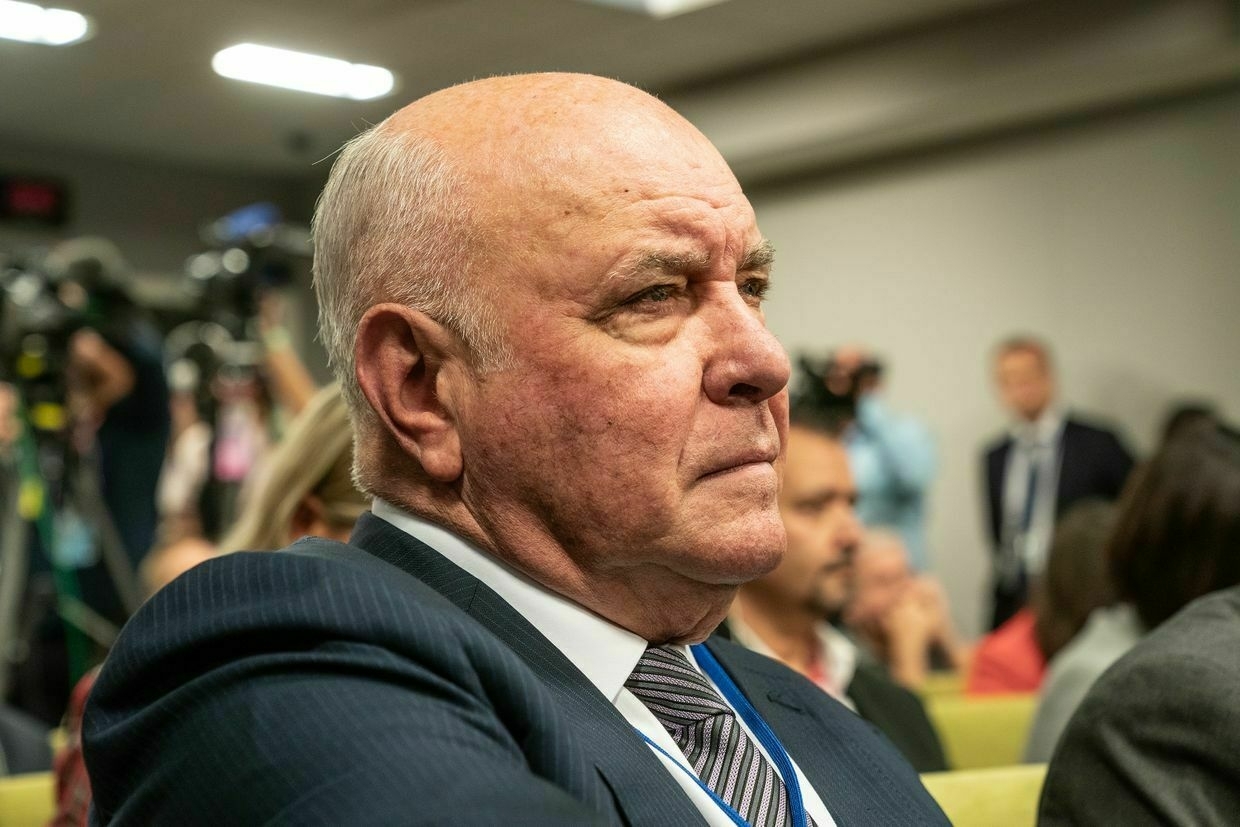
The international community, including the U.N. and “individual countries,” will be involved in the U.S.-Russian talks on ending the war against Ukraine, Russian negotiator Grigory Karasin told state-owned news agency TASS on March 25.
Karasin, chairman of the Federation Council Committee on International Affairs, took part in talks with the U.S. in Riyadh on March 24 and described the meeting as a broad but “difficult dialogue."
“Many problems were discussed. Of course, not everything was resolved, not everything was agreed upon,” the Russian official added.
The talks, which were said to focus on a possible renewal of the Black Sea Initiative, are part of the Trump administration’s broader efforts to negotiate a ceasefire in Ukraine. The Black Sea Grain Initiative was brokered by the U.N. and Turkey in 2022 to ensure navigation safety but broke down after Moscow withdrew a year later.
Karasin noted that the discussions will continue with the involvement of “the international community, first of all, the United Nations and individual countries.” The official did not specify which countries would be included and in what capacity.
U.S. President Donald Trump’s return to the White House marked a major shift in Washington’s foreign policy. The temporary pause in military and intelligence support for Ukraine and the embrace of Moscow’s talking points among Trump administration officials are causing concern in Kyiv and among European partners.
The U.K. and France are spearheading the so-called “coalition of the willing” to provide Kyiv with security guarantees, including a potential deployment of peacekeepers, amid the uncertainties of the continued U.S. support. French President Emmanuel Macron is reportedly considering a peacekeeping mission under the auspices of the U.N., a proposal rejected by President Volodymyr Zelensky.
Editorial: What Steve Witkoff doesn’t get about Ukraine (and Russia)In any negotiation, one of the most powerful weapons is knowledge. In that regard, Steve Witkoff is willfully disarmed. And it’s playing just right for Russia. The interview that Witkoff, Trump’s special envoy, gave to Tucker Carlson a few days ago revealed a truth that was perceived especiallyThe Kyiv IndependentThe Kyiv Independent
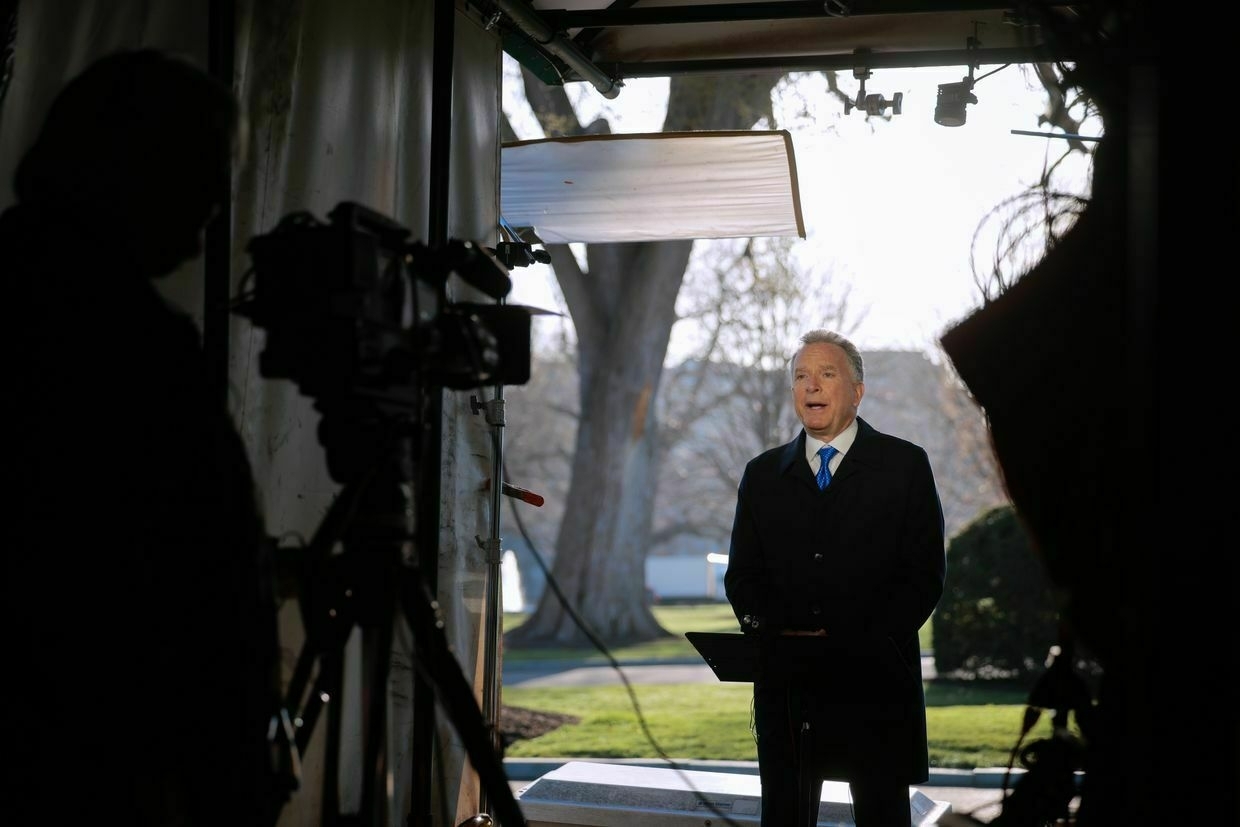
-
Ukraine's precision airstrike kills up to 30 Russian soldiers in Kursk Oblast, military claims
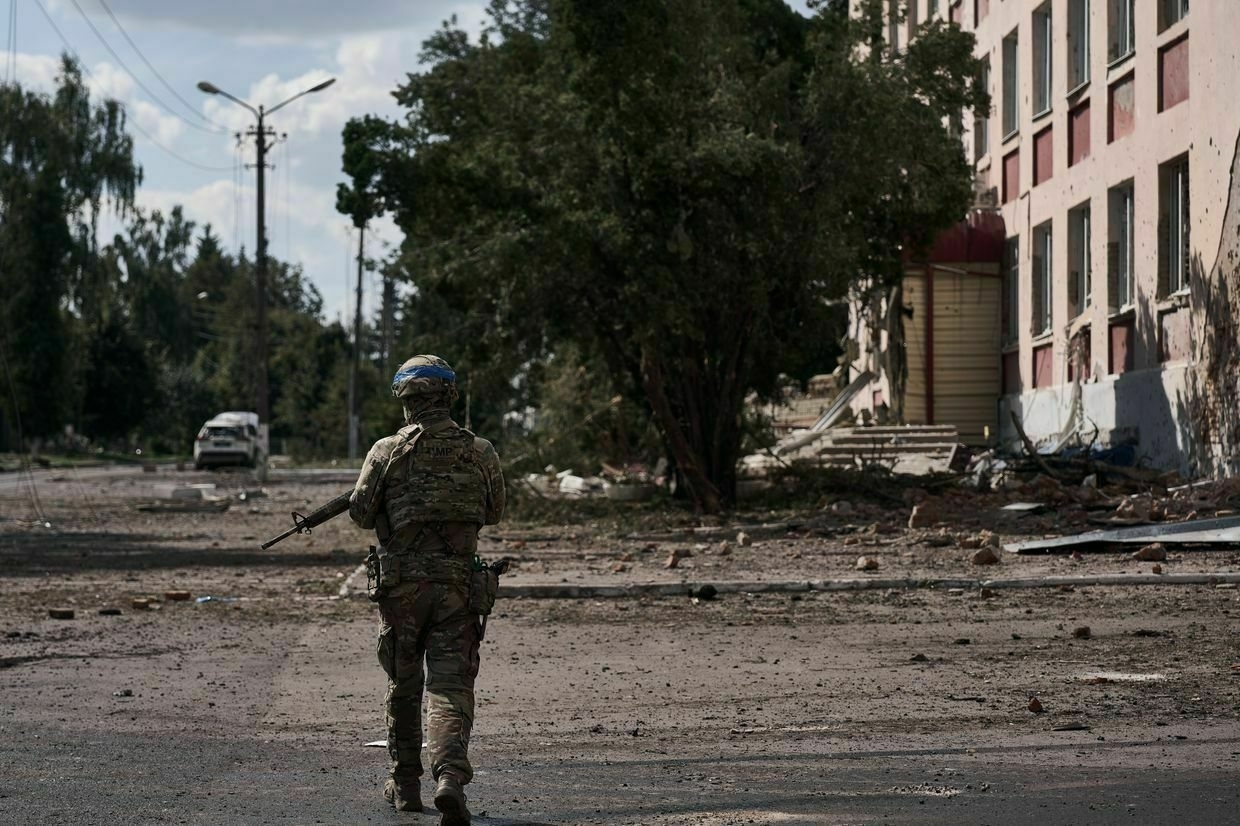
Ukraine’s Air Force struck a concentration of Russian military personnel in Kondratovka, Kursk Oblast, killing up to 30 Russian soldiers, the General Staff reported on March 25.
“As a result of the strike, it (the target) was completely destroyed,” the statement said, adding that Ukraine’s pilots and Defense Forces will continue targeting Russian positions to reduce Moscow’s military potential.
The Kyiv Independent could not independently verify the claims.
Kondratovka is a rural community in western Kursk Oblast, near the border with Ukraine. It is part of the historical region of Slobozhanshchyna.
The attack comes amid ongoing fighting in Kursk Oblast, where Ukraine launched a cross-border incursion in August 2024.
Russian forces, reinforced by North Korean troops, launched a counteroffensive earlier this month, regaining significant ground, including the town of Sudzha.
U.S. President Donald Trump has repeatedly claimed that Ukrainian soldiers have been “surrounded” in Kursk Oblast, though Kyiv has denied this while acknowledging a retreat from Sudzha.
U.S. and European intelligence contradict claims of an encirclement made by Trump and Russian President Vladimir Putin, Reuters reported on March 20, citing undisclosed sources.
1 killed, 110 injured in Russian attacks against Ukraine over past dayRussia launched a devastating missile attack against the northeastern city of Sumy on March 24, just as the U.S. and Russia were leading ceasefire talks in Saudi Arabia.The Kyiv IndependentMartin Fornusek
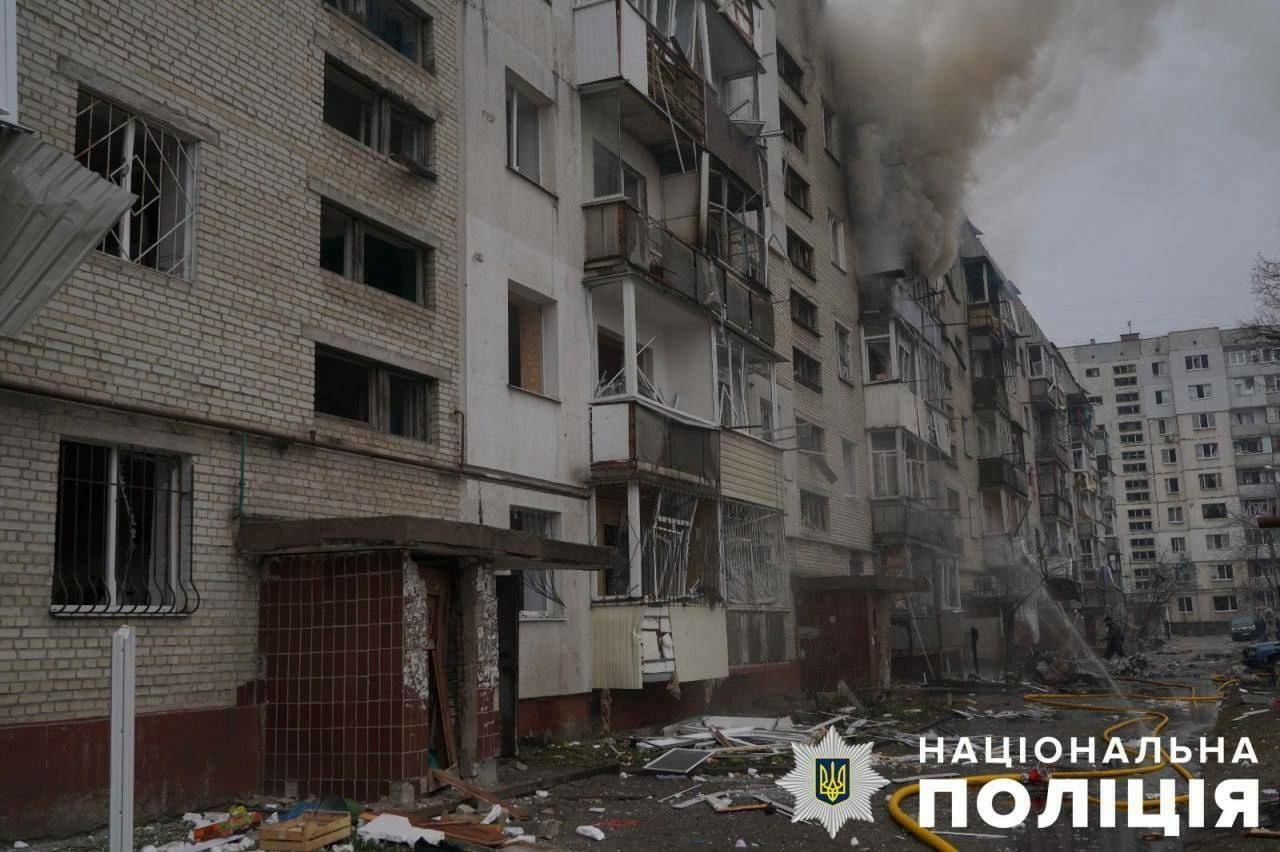
-
Hegseth denies leaking war plans in Signal chat while White House says messages appear 'authentic'
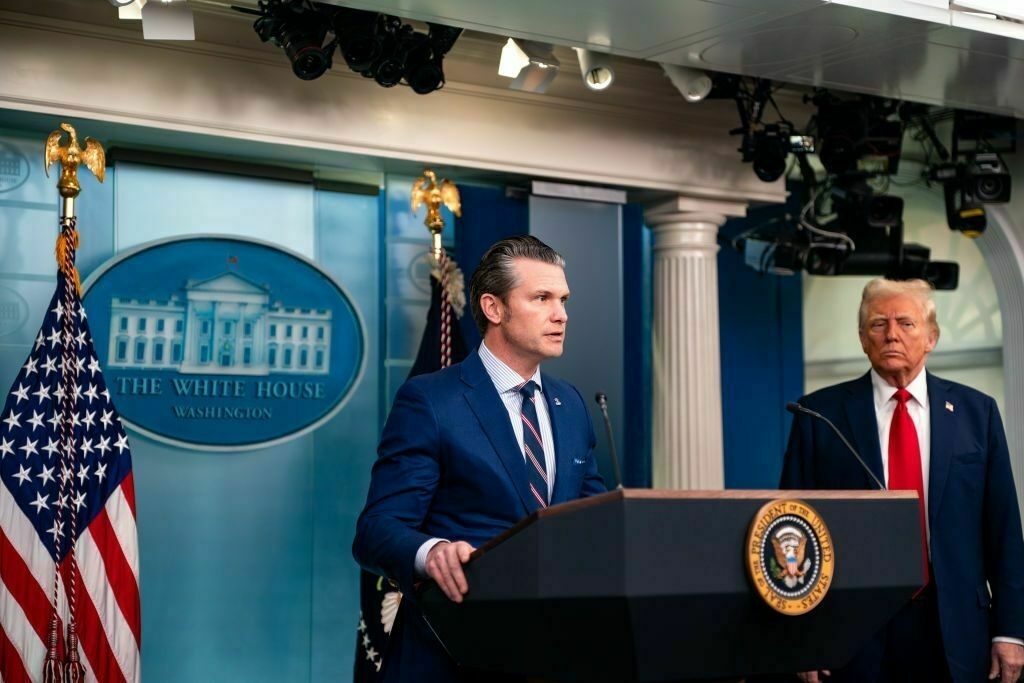
U.S. Defense Secretary Pete Hegseth said on March 25 that “nobody was texting war plans” in a Signal chat among top Trump administration officials.
“You’re talking about a deceitful and highly discredited so-called journalist (Jeffrey Goldberg, editor-in-chief of the Atlantic) who’s made a profession of peddling hoaxes,” the defense secretary told Fox News.
The statement comes as Goldberg claimed on March 24 that he was mistakenly added to a private Signal chat where Trump administration officials discussed plans for strikes on Yemen.
Despite Hegseth’s denial, the leak was indirectly confirmed by National Security Council spokesperson Brian Hughes, who said the chat “appears to be authentic.” The administration is investigating how an “inadvertent number” was added to the group, he added.
According to Goldberg, on March 11 — four days before the U.S. military strike on Yemen — he received a Signal message from a user named “Michael Waltz,” the namesake of U.S. President Donald Trump’s national security adviser.
After accepting the request, he found himself in a chat named “Houthi PC small group” (PC referring to the Principals Committee, a U.S. national security decision-making body).
Waltz, a former Green Beret and Florida congressman, has been a vocal advocate for reducing U.S. military aid to Ukraine, arguing that European nations should bear more responsibility.
His appointment as Trump’s national security adviser has raised concerns about a shift in Washington’s approach to Ukraine and NATO.
The chat reportedly included 18 accounts with names corresponding to top U.S. officials, including Hegseth, Secretary of State Marco Rubio, Director of National Intelligence Tulsi Gabbard, CIA Director John Ratcliffe, and Trump adviser Steve Witkoff.
Gabbard is a former Democrat and Army National Guard veteran who has echoed Russian narratives on Ukraine. Hegseth is a Fox News personality and former Army officer who now serves as defense secretary despite lacking high-level military leadership experience.
Messages within the chat detailed the planning and discussion of the March 15 strike on Yemen, leading Goldberg to conclude that the group was real.
Trump later denied knowledge of the incident. “I don’t know anything about it. I’m not a big fan of the Atlantic. To me, it’s a magazine that’s going out of business. It’s not much of a magazine. But I know nothing about it,” he said at a briefing.
The incident has sparked comparisons to past security controversies, particularly Hillary Clinton’s use of a private email server while serving as secretary of state from 2009 to 2013.
The FBI investigated Clinton for handling classified information via private email, concluding in 2016 that she had been “extremely careless” but did not commit a prosecutable offense.
Some Democrats have highlighted what they see as hypocrisy, given Trump’s past calls for severe punishment of Clinton over her email practices.
“You know what Hillary Clinton didn’t do? Post war plans on her email,” said Congressman Jim Himes of Connecticut, the ranking member of the House Intelligence Committee, Politico reported.
Clinton reacted on X with a brief post, saying, “You’ve got to be kidding me."
Legal experts interviewed by the Atlantic suggested Waltz’s actions could constitute a violation of laws governing the handling of national defense information.
The Signal chat leak comes amid Trump’s broader push to reshape U.S. foreign policy, as his administration grapples with wars in Ukraine and the Middle East while attempting to redefine America’s global security commitments.
Editorial: What Steve Witkoff doesn’t get about Ukraine (and Russia)In any negotiation, one of the most powerful weapons is knowledge. In that regard, Steve Witkoff is willfully disarmed. And it’s playing just right for Russia. The interview that Witkoff, Trump’s special envoy, gave to Tucker Carlson a few days ago revealed a truth that was perceived especiallyThe Kyiv IndependentThe Kyiv Independent
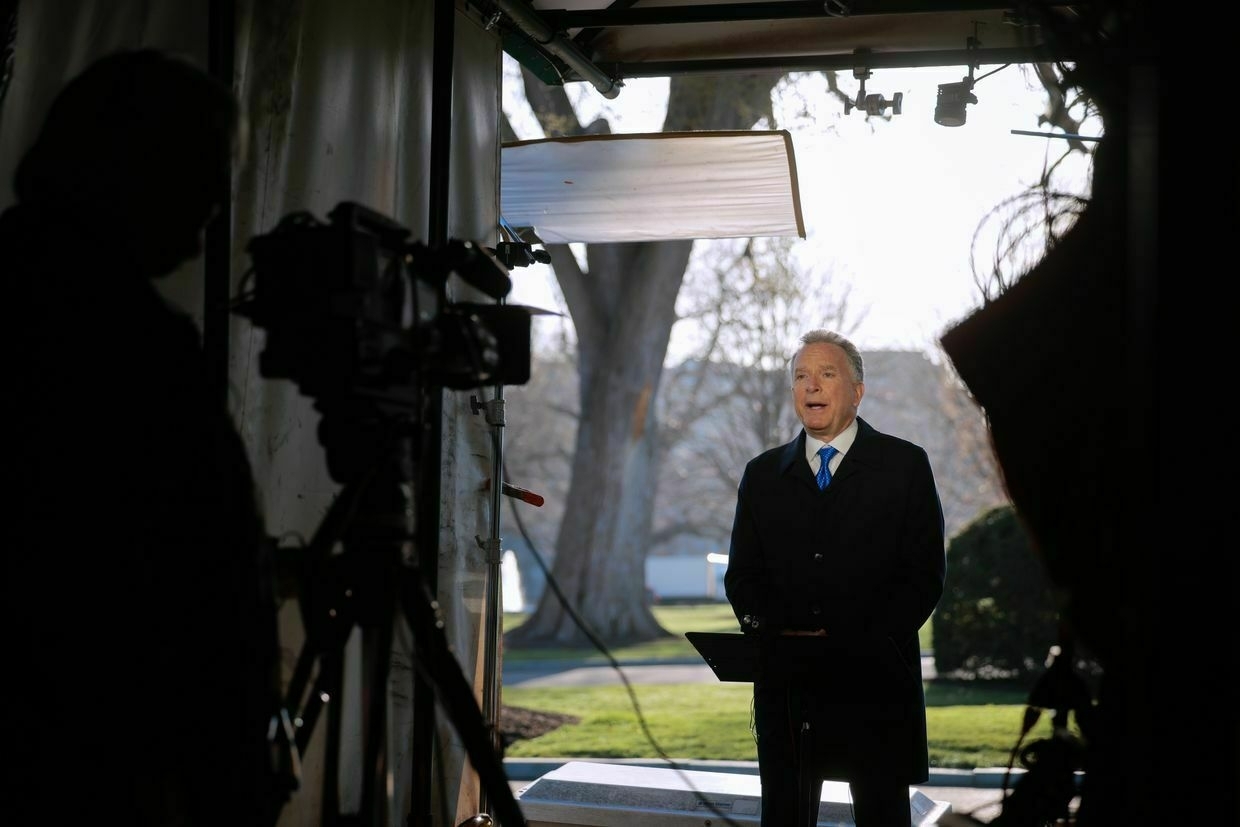
-
General Staff: Russia has lost 905,940 troops in Ukraine since Feb. 24, 2022
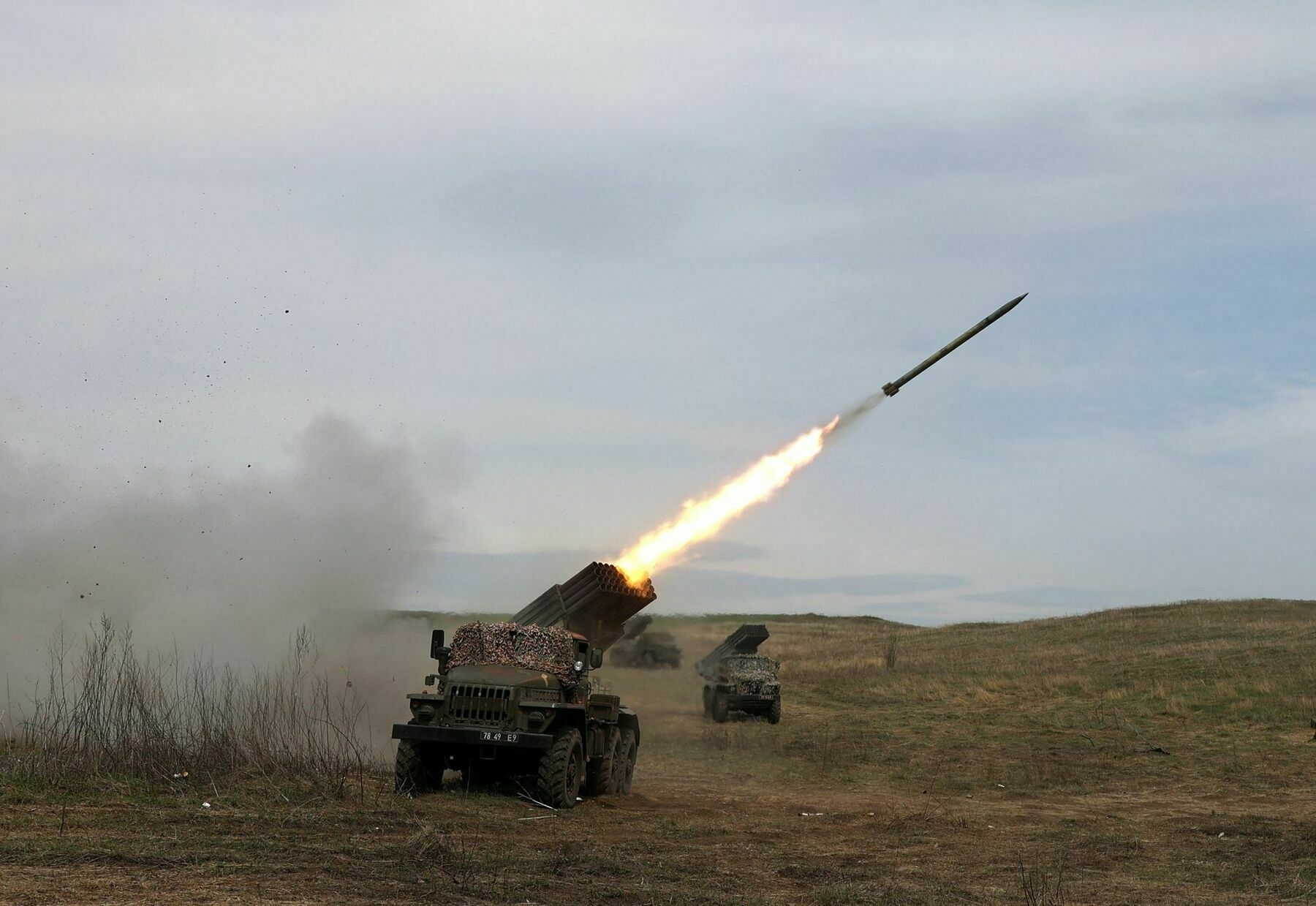
Russia has lost 905,940 troops in Ukraine since the beginning of its full-scale invasion on Feb. 24, 2022, the General Staff of Ukraine’s Armed Forces reported on March 25.
The number includes 1,180 casualties Russian forces suffered just over the past day.
According to the report, Russia has also lost 10,425 tanks, 21,670 armored fighting vehicles, 41,824 vehicles and fuel tanks, 25,190 artillery systems, 1,341 multiple launch rocket systems, 1,117 air defense systems, 370 airplanes, 335 helicopters, 30,759 drones, 28 ships and boats, and one submarine.
Trump administration preparing to impose tariffs on 15 countries, including RussiaThose expected to be impacted by sanctions include Russia, Australia, Canada, the EU, and China, among many other expected targets, the Wall Street Journal (WSJ) reported.The Kyiv IndependentVolodymyr Ivanyshyn
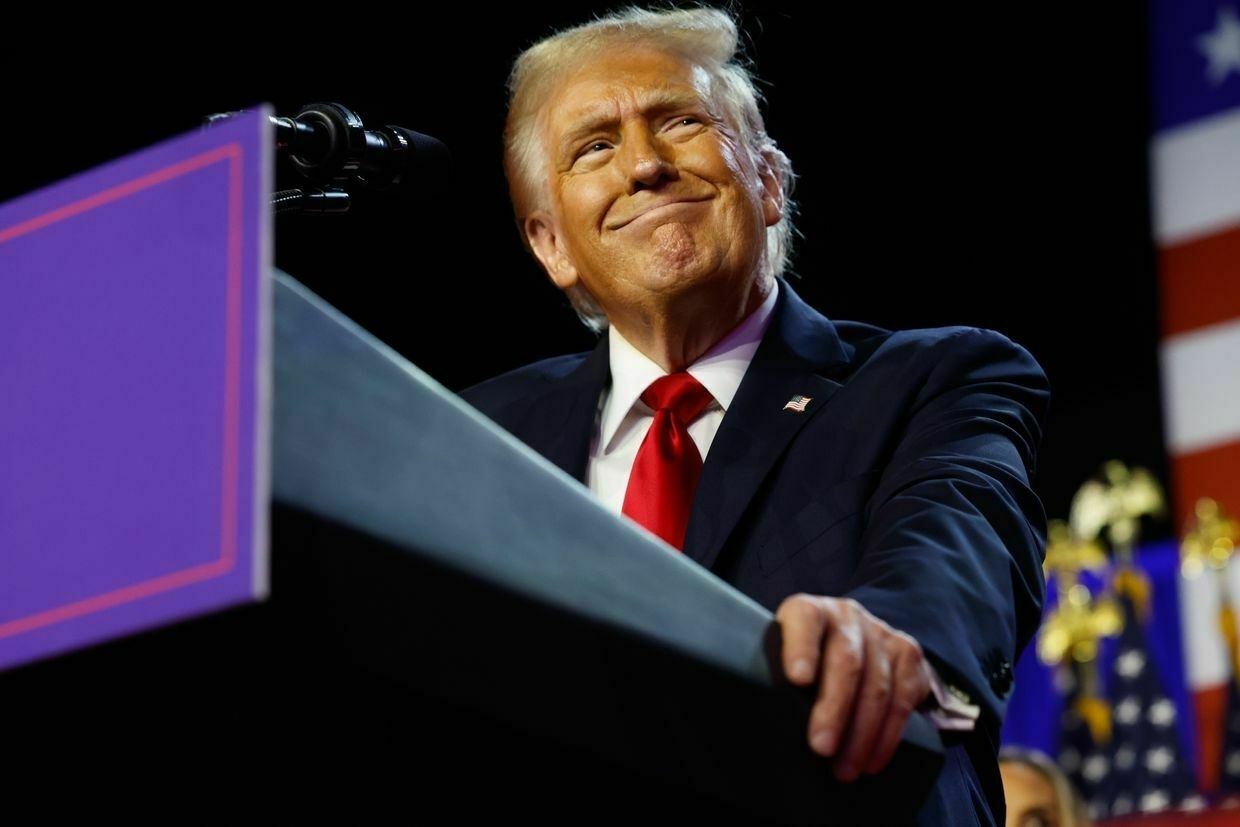
-
Trump administration preparing to impose tariffs on 15 countries, including Russia
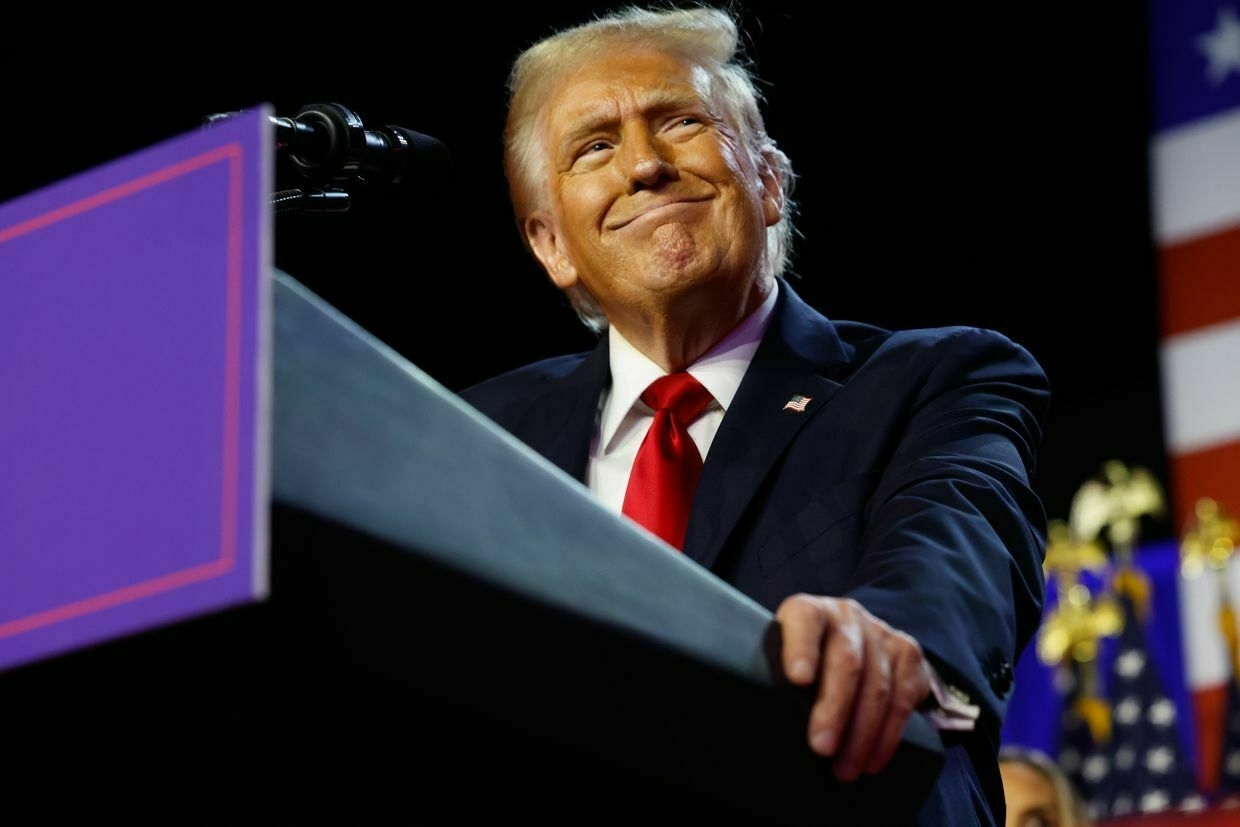
The U.S. is preparing to impose tariffs on 15 countries, including Russia, the Wall Street Journal (WSJ) reported on March 23.
The White House under U.S. President Donald Trump’s administration has repeatedly denounced what it has described as unfair economic relationships with key trading partners, including the EU and Canada. Trump has also previously threatened to impose heavy tariffs and sanctions on Russia as leverage to reach a peace deal.
The tariffs planned for April 2 are not as drastic as initially proposed, but still signal a departure from decades of free trade, the WSJ reported.
The U.S. could enact the tariffs promptly on April 2 by invoking Trump’s emergency economic powers, people familiar with the matter said.
Trump has touted the date tariffs are imposed as “Liberation Day,” freeing the U.S. from imbalanced trade.
Those expected to be impacted by tariffs include Russia, Australia, Canada, the EU, and China, among many other expected targets.
The U.S. is expected to impose tariffs of 15% on about 15 countries that were labeled as the “dirty 15” by U.S. Treasury Secretary Scott Bessent on March 18.
U.S. and Russian trade is at an all-time low due to sanctions imposed by the U.S. and other Western allies due to Russia’s full-scale war against Ukraine. The Trump administration has been expanding diplomacy with Moscow, however, and has said it is open to exploring a trade partnership.
Trump has also previously said he could use tariffs and sanctions to pressure Russia in peace negotiations.
“Based on the fact that Russia is absolutely ‘pounding’ Ukraine on the battlefield right now, I am strongly considering large-scale banking sanctions, sanctions, and tariffs on Russia until a ceasefire and final settlement agreement on peace is reached,” Trump said on March 7.
Editorial: What Steve Witkoff doesn’t get about Ukraine (and Russia)In any negotiation, one of the most powerful weapons is knowledge. In that regard, Steve Witkoff is willfully disarmed. And it’s playing just right for Russia. The interview that Witkoff, Trump’s special envoy, gave to Tucker Carlson a few days ago revealed a truth that was perceived especiallyThe Kyiv IndependentThe Kyiv Independent
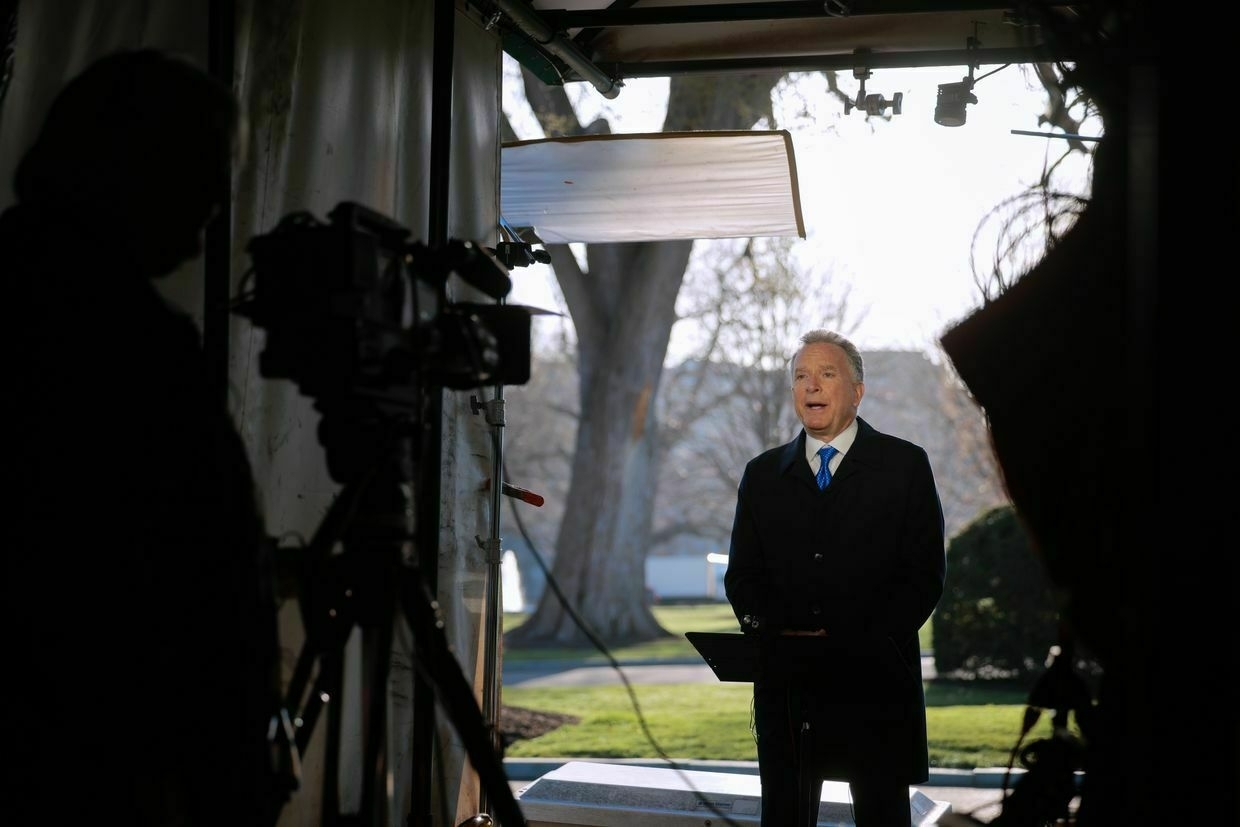
-
Ukrainian delegation to stay extra day in Saudi Arabia for continued talks with US, official says
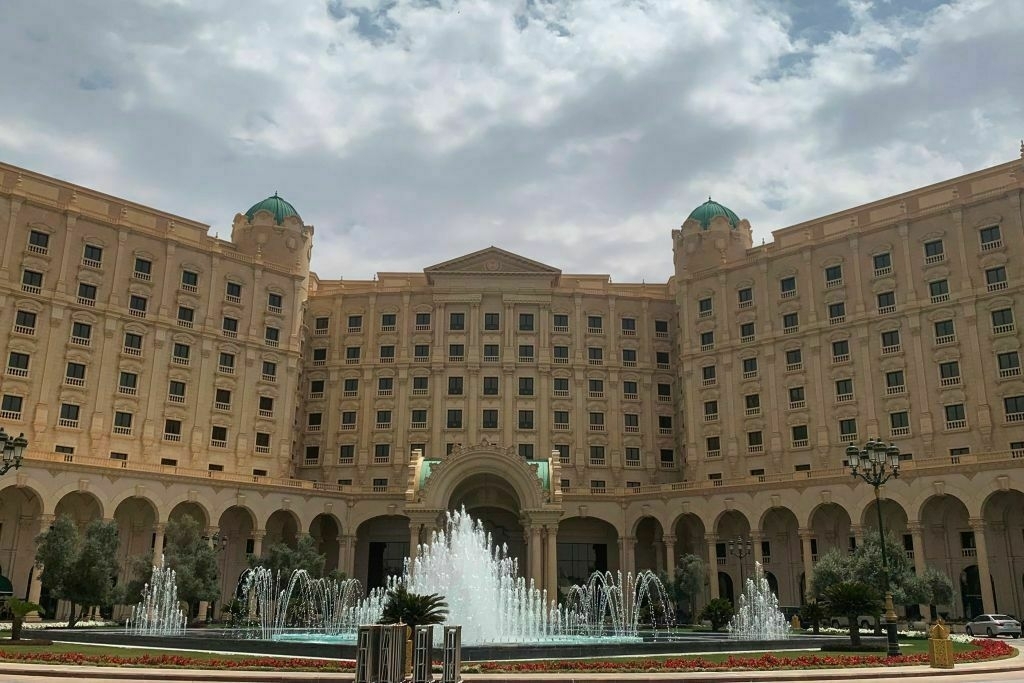
Ukrainian officials remained in Riyadh, Saudi Arabia following their initial meeting with a U.S. delegation on March 23, an unnamed delegation official told the news outlet Suspilne on March 24.
Russian and U.S. delegations met in Saudi Arabia on March 24 following Ukraine’s meeting with the U.S. a day earlier. Ukrainian and U.S. officials were reportedly expected to meet again depending on the outcome of the talks with Russia.
Another meeting has been scheduled between the Ukrainian and U.S. delegations, the official said.
Initially, the U.S. planned to hold talks with both Ukraine and Russia on the same day. President Volodymyr Zelensky later said the meeting would take place on March 23, the day before.
The U.S.-Ukraine talks include discussions on territories, demarcation lines, and control of Ukraine’s power plant, U.S. President Donald Trump said on March 24.
The teams also discussed a possible ceasefire over attacks on seaports.
“The discussion concerned a mutual ceasefire: we won’t attack their (Russian) facilities at sea and rivers, and they won’t attack our facilities, our Kherson and Mykolaiv ports, the greater Odesa ports,” Presidential Office Advisor Serhii Leshchenko said on March 24.
Defense Minister Rustem Umerov, who led the Ukrainian delegation, said the discussions included military, diplomatic, and energy representatives.
“The conversation was constructive and meaningful — we discussed key issues, including in the energy sector,” Umerov wrote on Facebook.
The talks between Russia and the U.S. the following day lasted 12-hours. Journalists were asked to leave the hotel before the closed-door negotiations, Suspilne reported.
Editorial: What Steve Witkoff doesn’t get about Ukraine (and Russia)In any negotiation, one of the most powerful weapons is knowledge. In that regard, Steve Witkoff is willfully disarmed. And it’s playing just right for Russia. The interview that Witkoff, Trump’s special envoy, gave to Tucker Carlson a few days ago revealed a truth that was perceived especiallyThe Kyiv IndependentThe Kyiv Independent
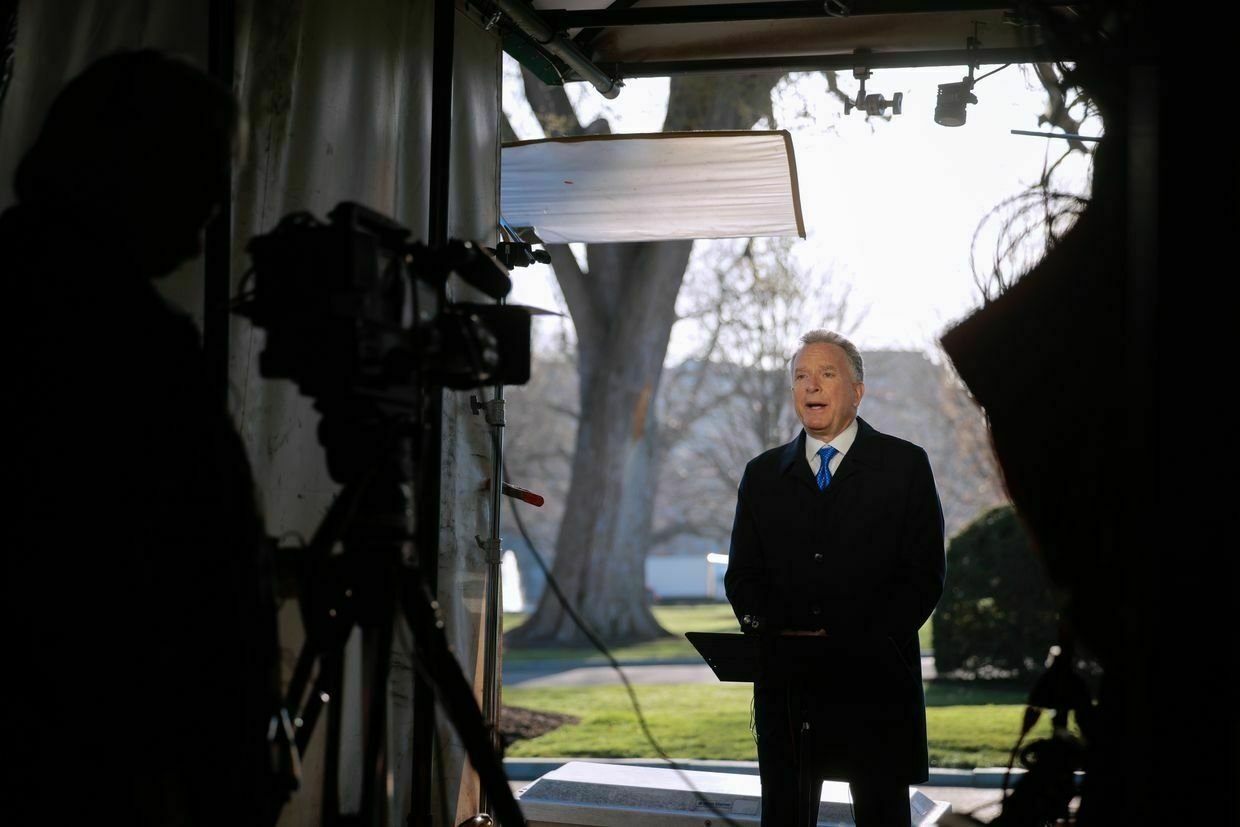
-
Amid tense talks in Saudi Arabia, Russia demands U.S. cede four regions of Ukraine
During high-stakes talks with the United States in Saudi Arabia, Russia remains firm on its demand for control over four Ukrainian regions, banking on the idea that the U.S. won't be concerned about changing borders between Ukraine and Russia. Citing its own sources, The Moscow Times reports that the Russian delegation is pressing the U.S. to cede to its control over the Donetsk, Luhansk, Zaporizhzhia, and Kherson regions of Ukraine.
The Kremlin insists on gaining control of these regions within their administrative borders—even though Moscow does not fully control any of them currently.
"Politically, Vladimir Putin can’t afford to lose these territories; Russia is determined to secure them at any cost. The Russian constitution has no mechanism for regions to leave. We need the entire Zaporizhzhia and Kherson regions," a source told the publication.
Another high-level Russian official expressed hope that the U.S. would pressure Ukraine into withdrawing its forces from Russian-occupied areas. "Either Trump will influence them to leave, or we’ll be told to enter prolonged negotiations while using military force to establish control concurrently. That’s the worst scenario for us because crossing rivers is always a painful operation," he explained.
Journalists claim Moscow might also attempt to seize parts of Dnipropetrovsk or Sumy Oblasts as bargaining chips to offer in exchange for Kherson and Zaporizhzhia. "We are looking for a solution that would avoid crossing the Dnipro or assaulting Kherson. Hopefully, it won’t come to that, as it would mean thousands of casualties for us," another source stressed.
In the meantime, the Kremlin is banking on the indifference of a potential Trump administration to the precise territorial outcomes: "My understanding is that Trump wants to see a modern, well-armed, pro-Western Ukraine. He can’t just hand over Ukraine entirely, but he’s less concerned about exactly where the border will be drawn," sources informed The Moscow Times.
On March 6, a Ukrainian military serviceman with the call sign "Alex" indicated that Russian forces aim to reach the borders of Dnipropetrovsk. Meanwhile, on March 20, Russian Foreign Ministry spokesperson Maria Zakharova stated that Russia expects the U.S. to stop supplying Ukraine with arms and intelligence.


